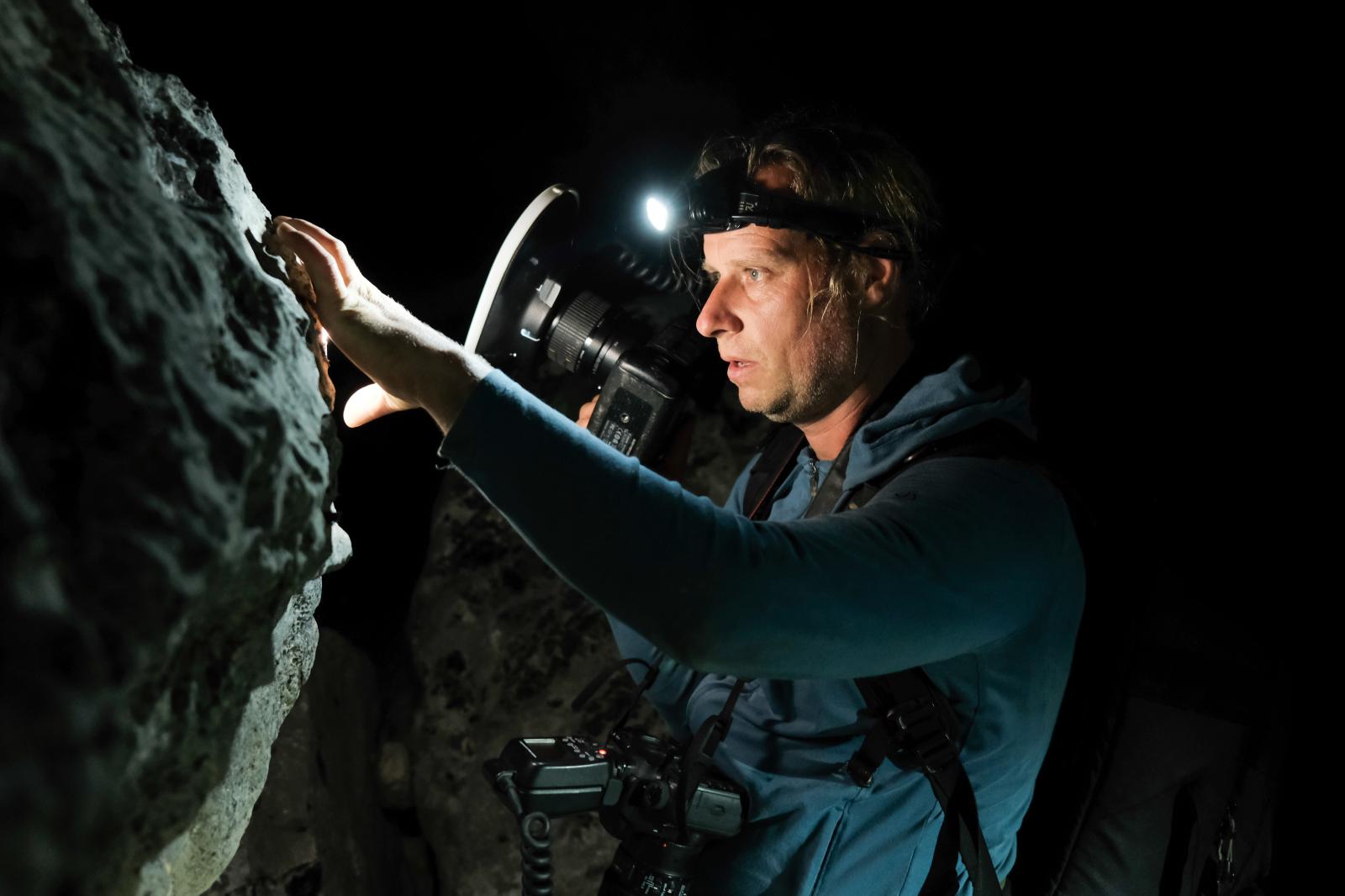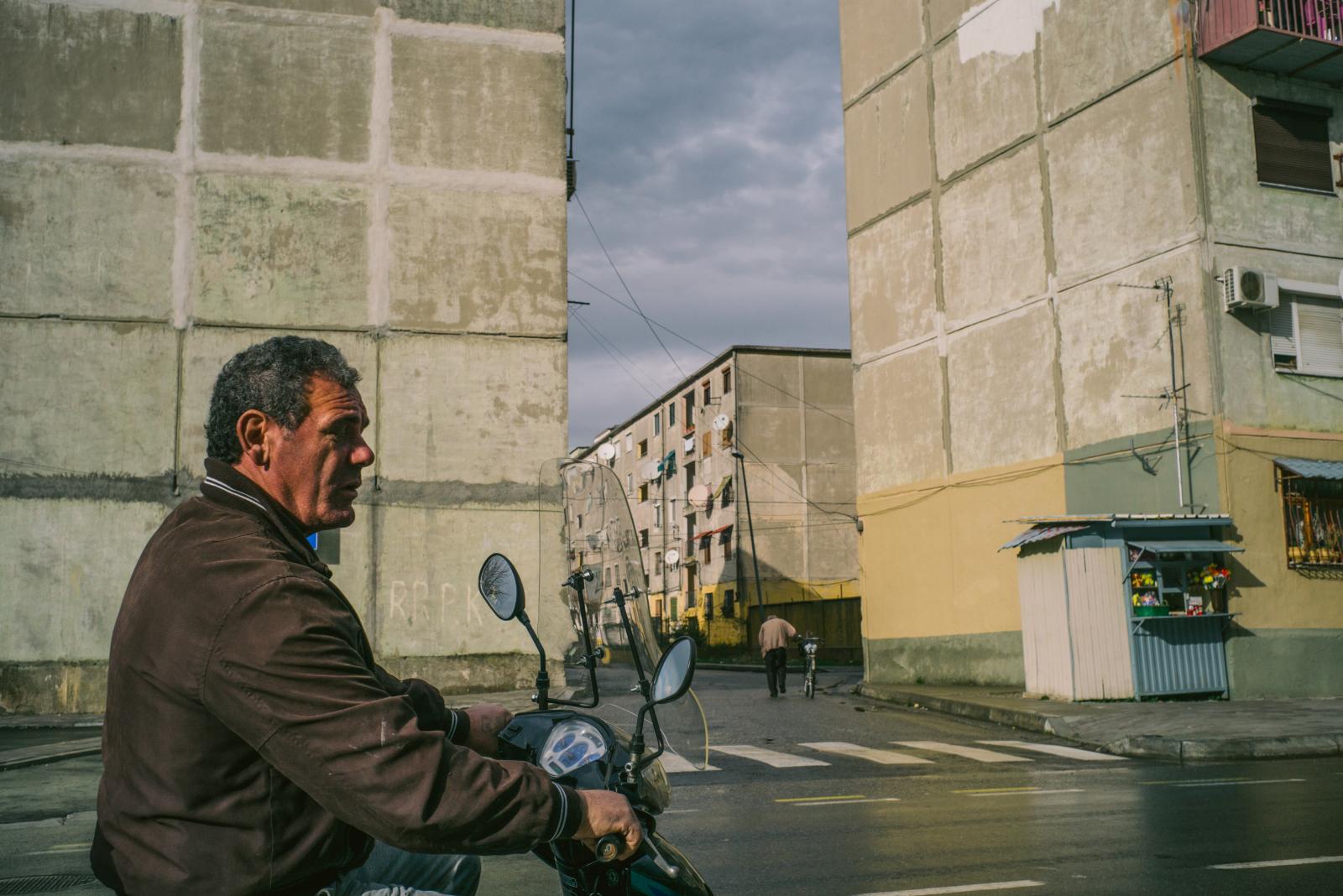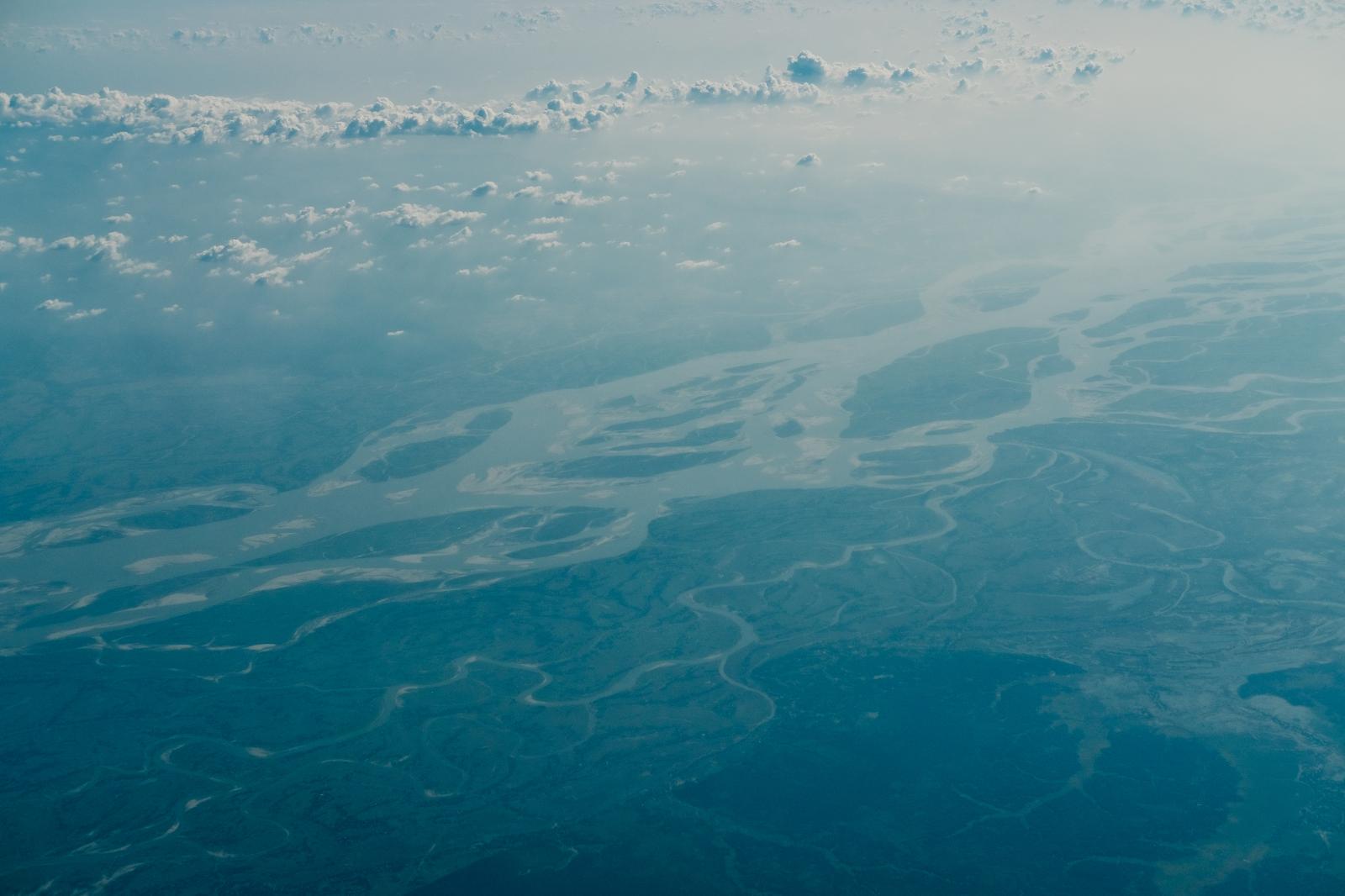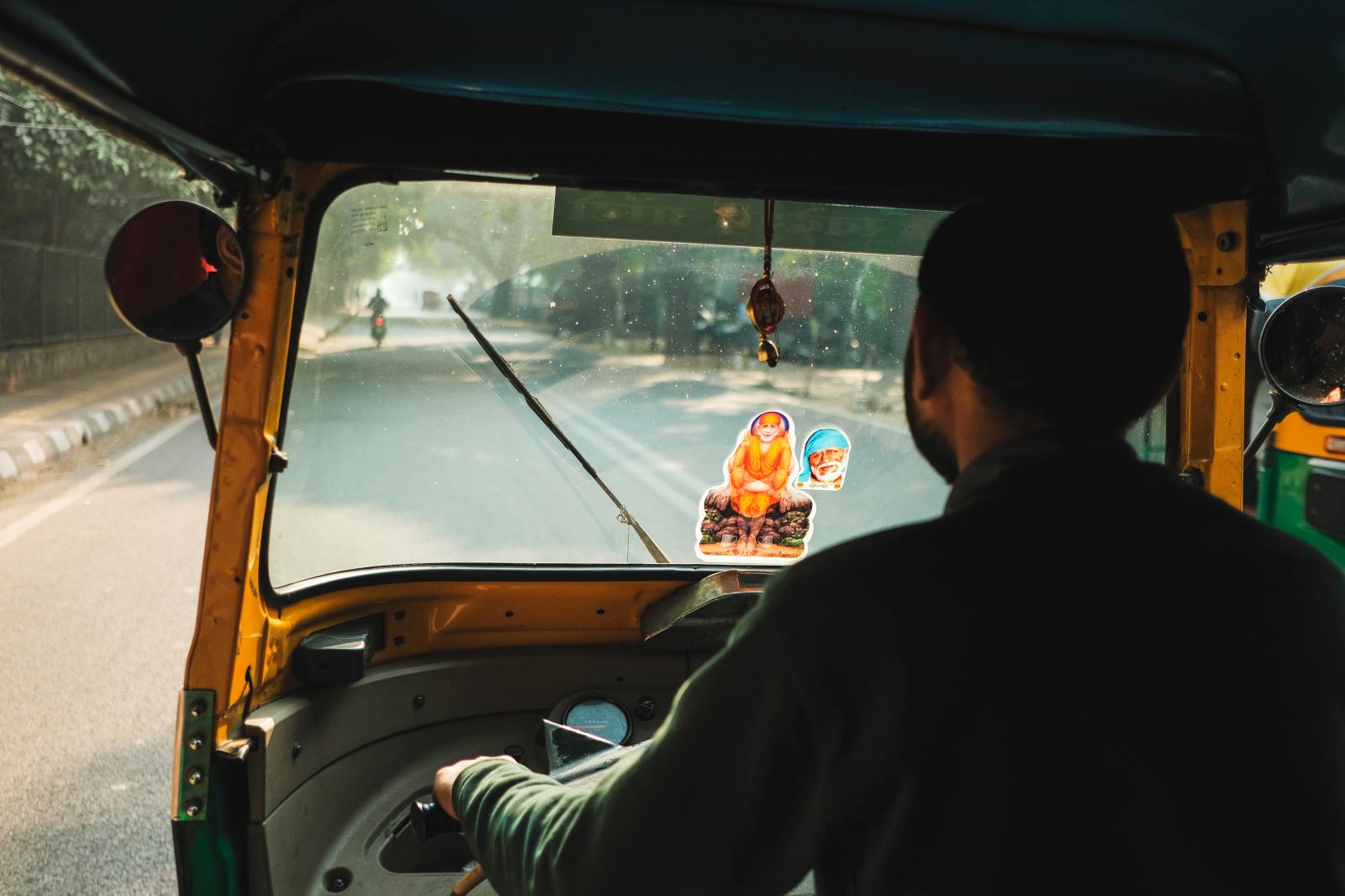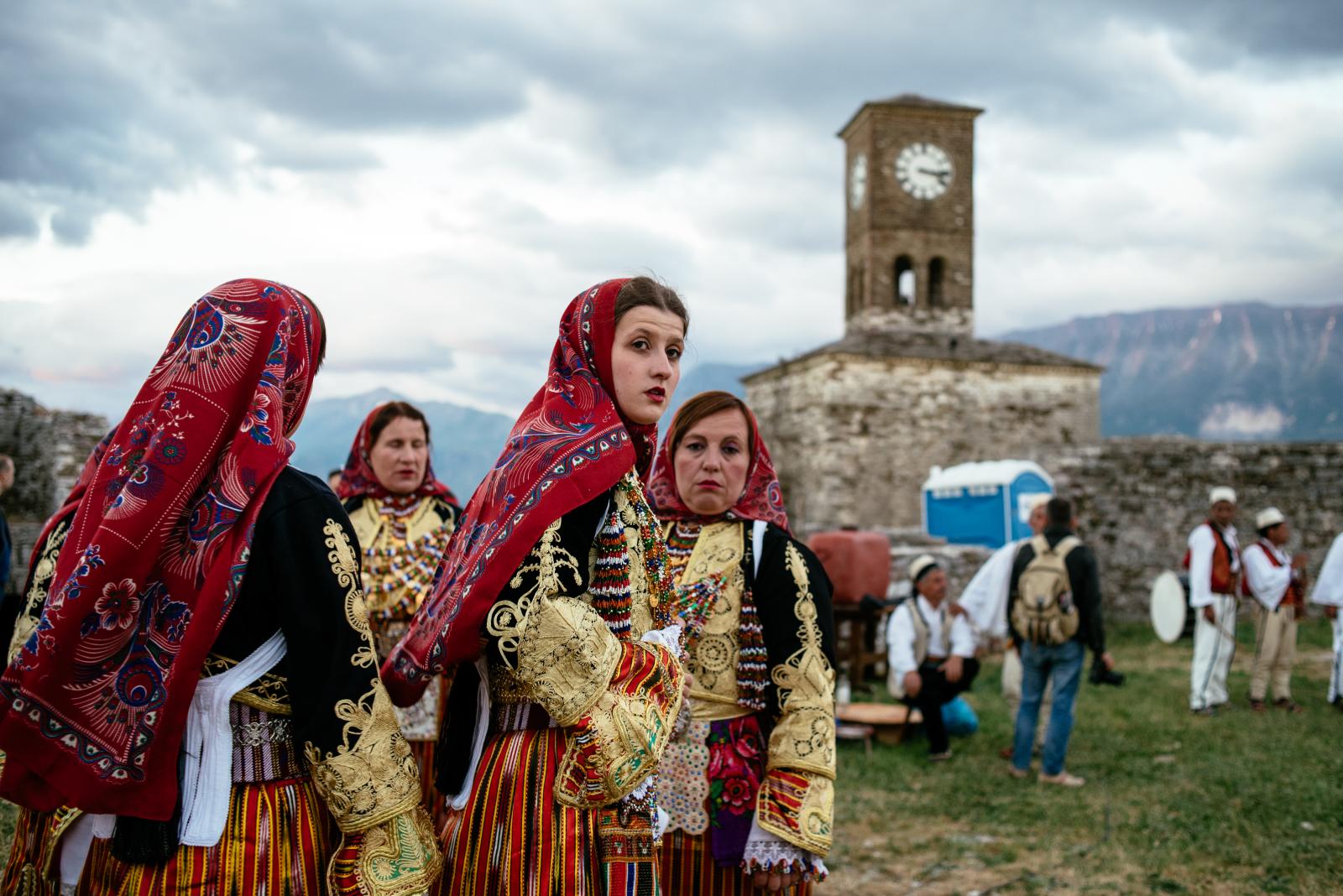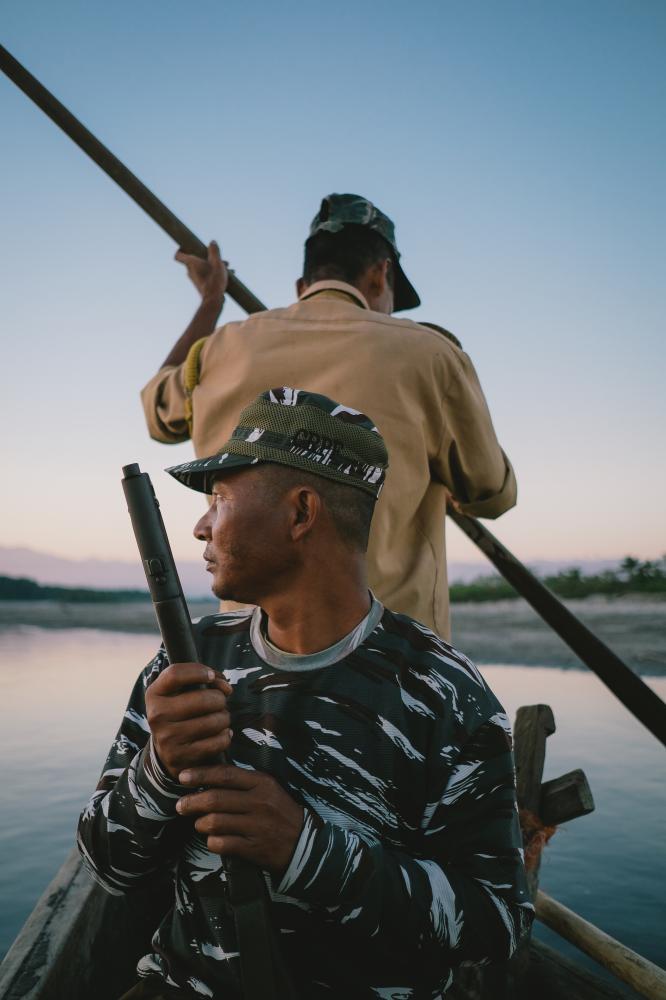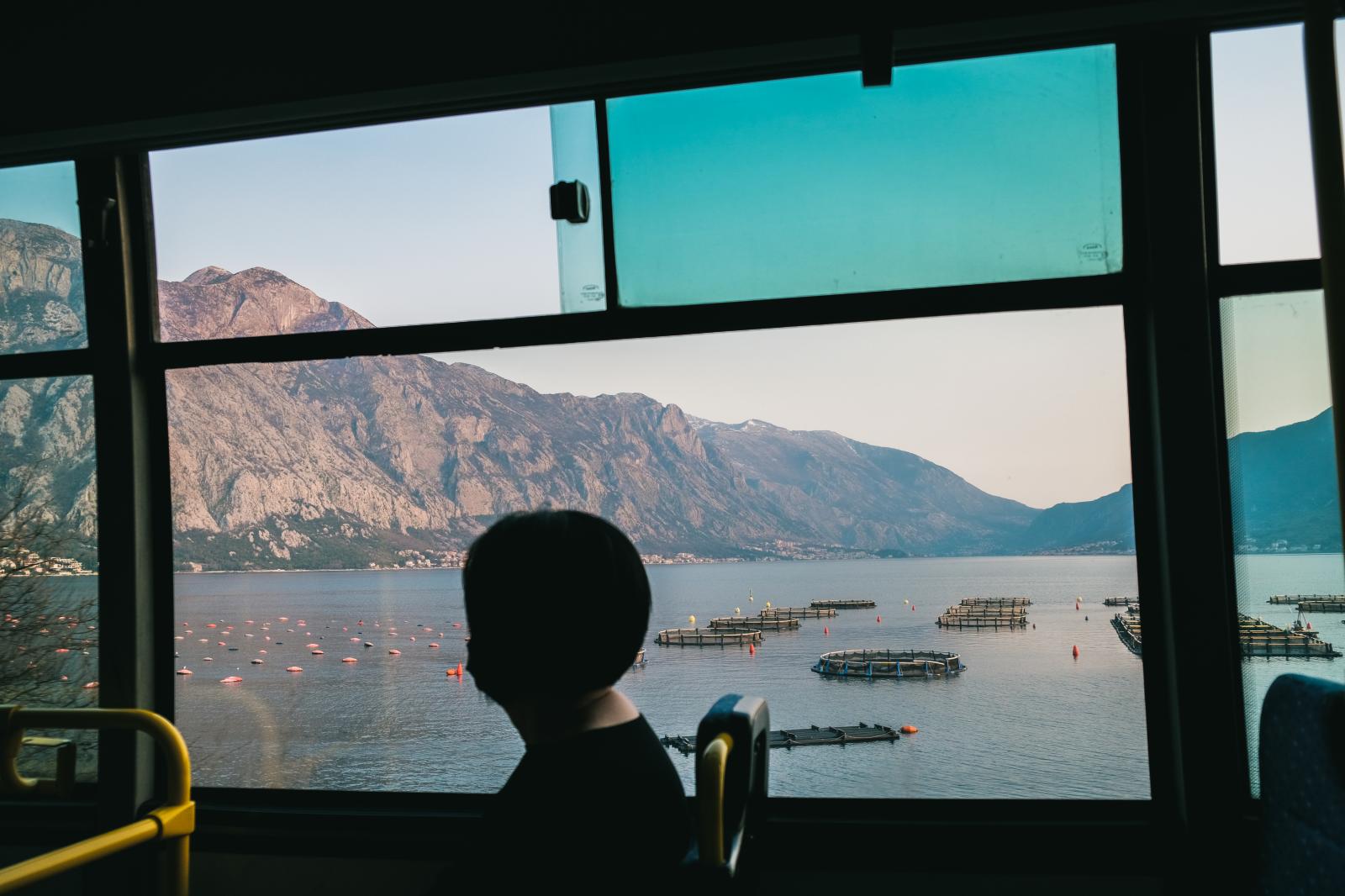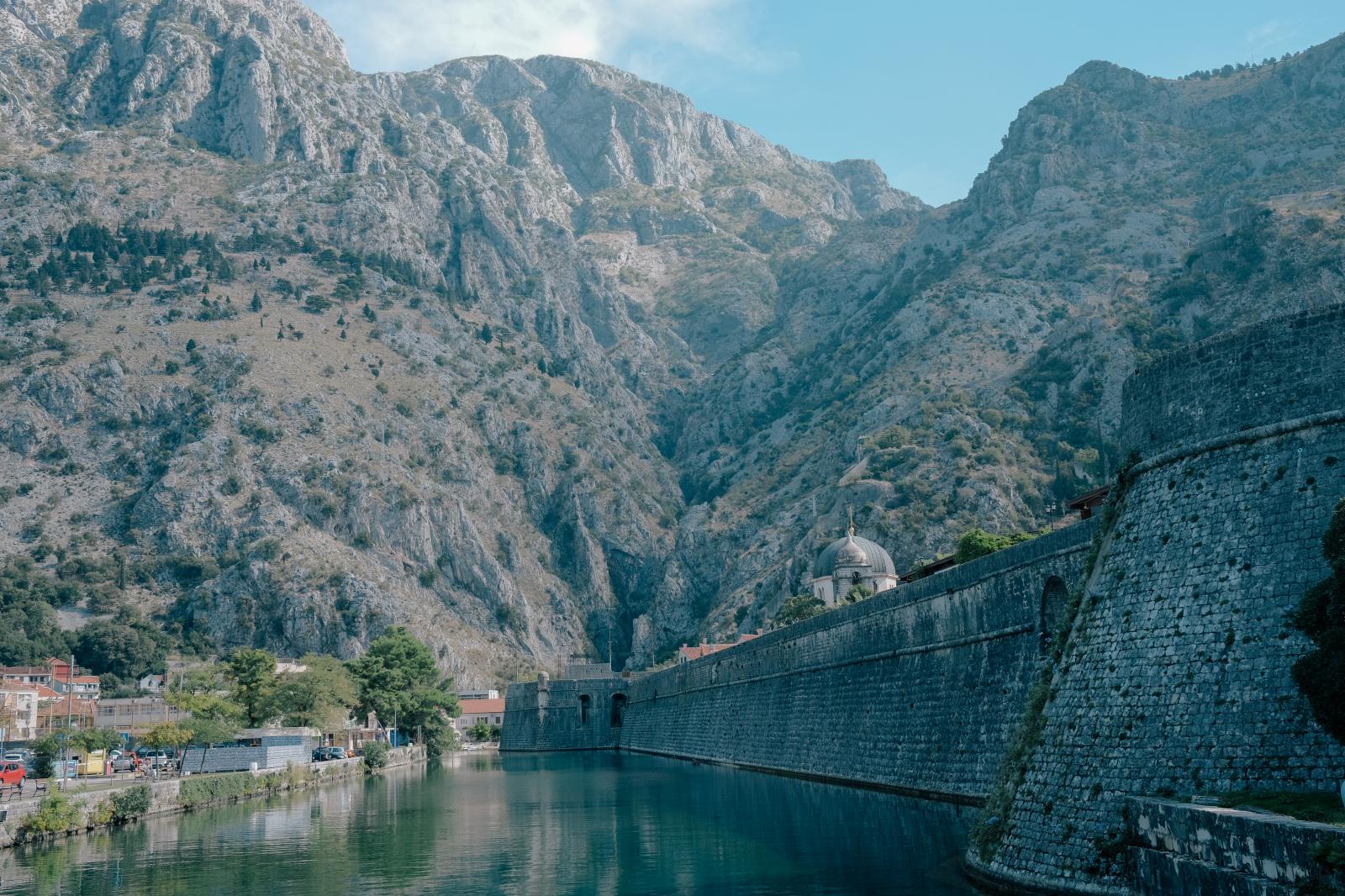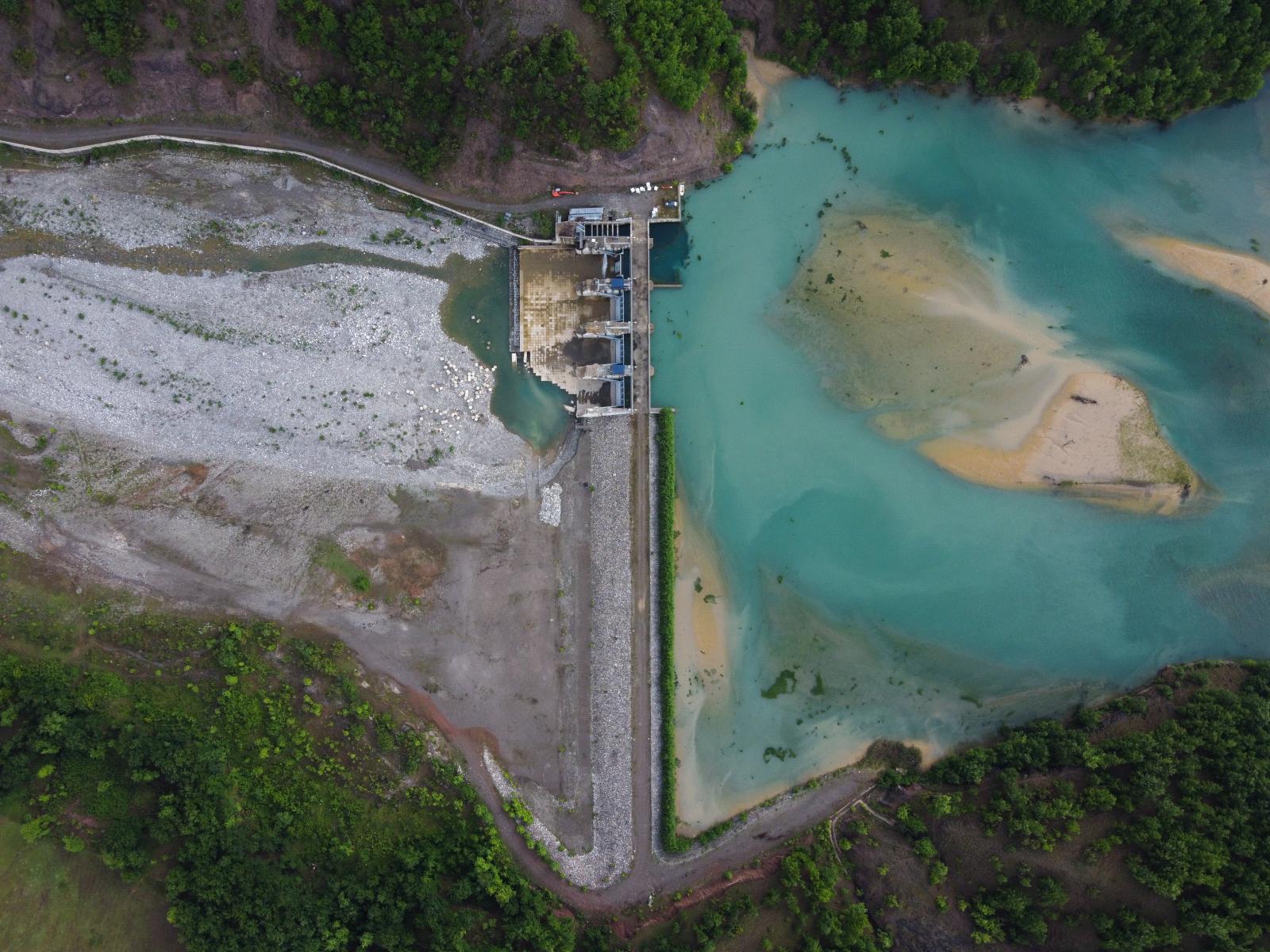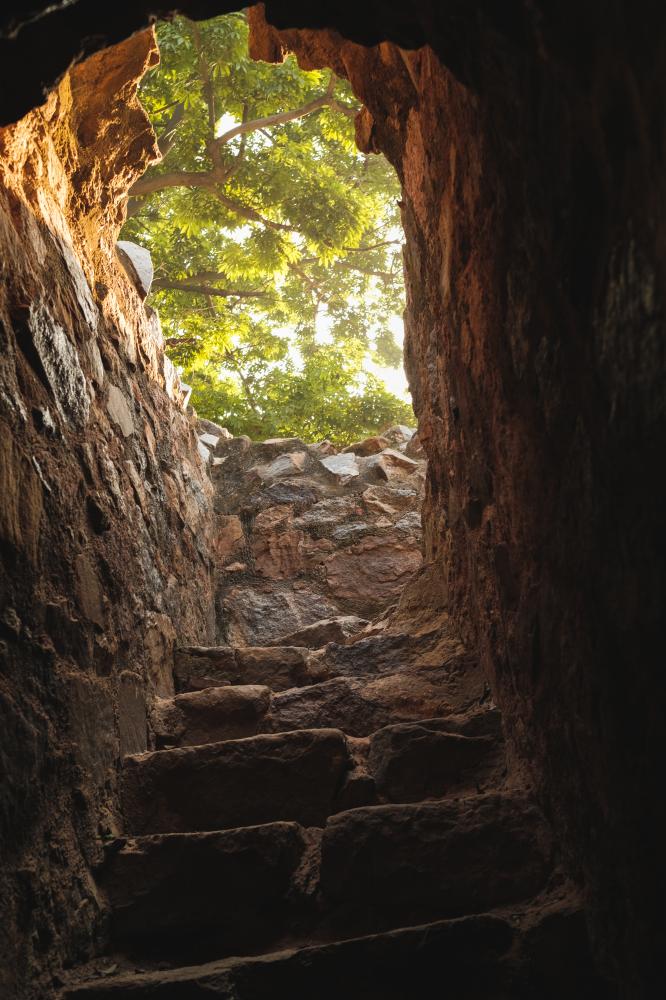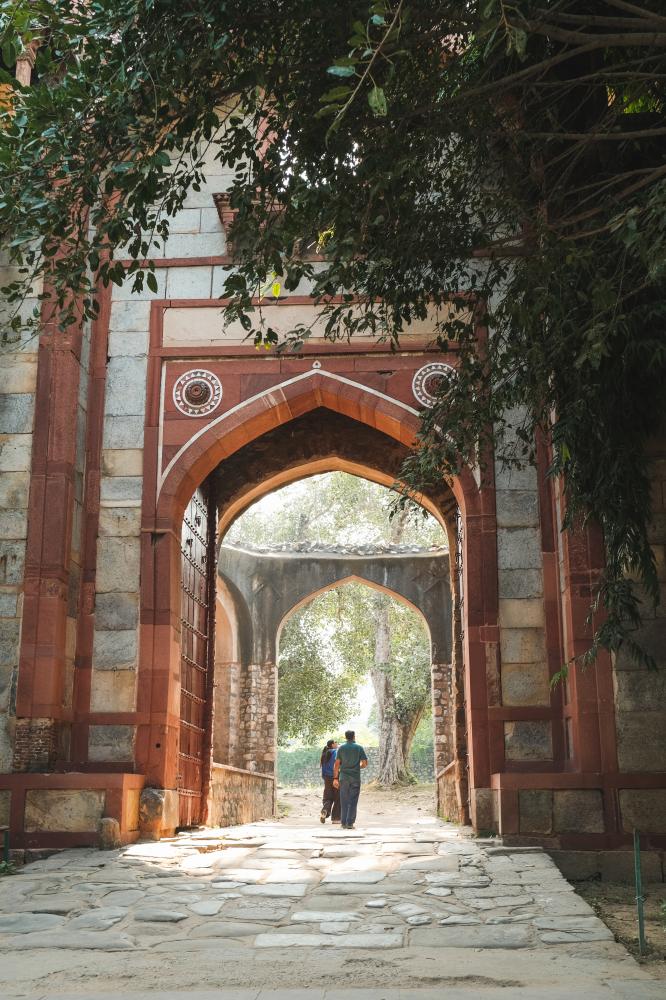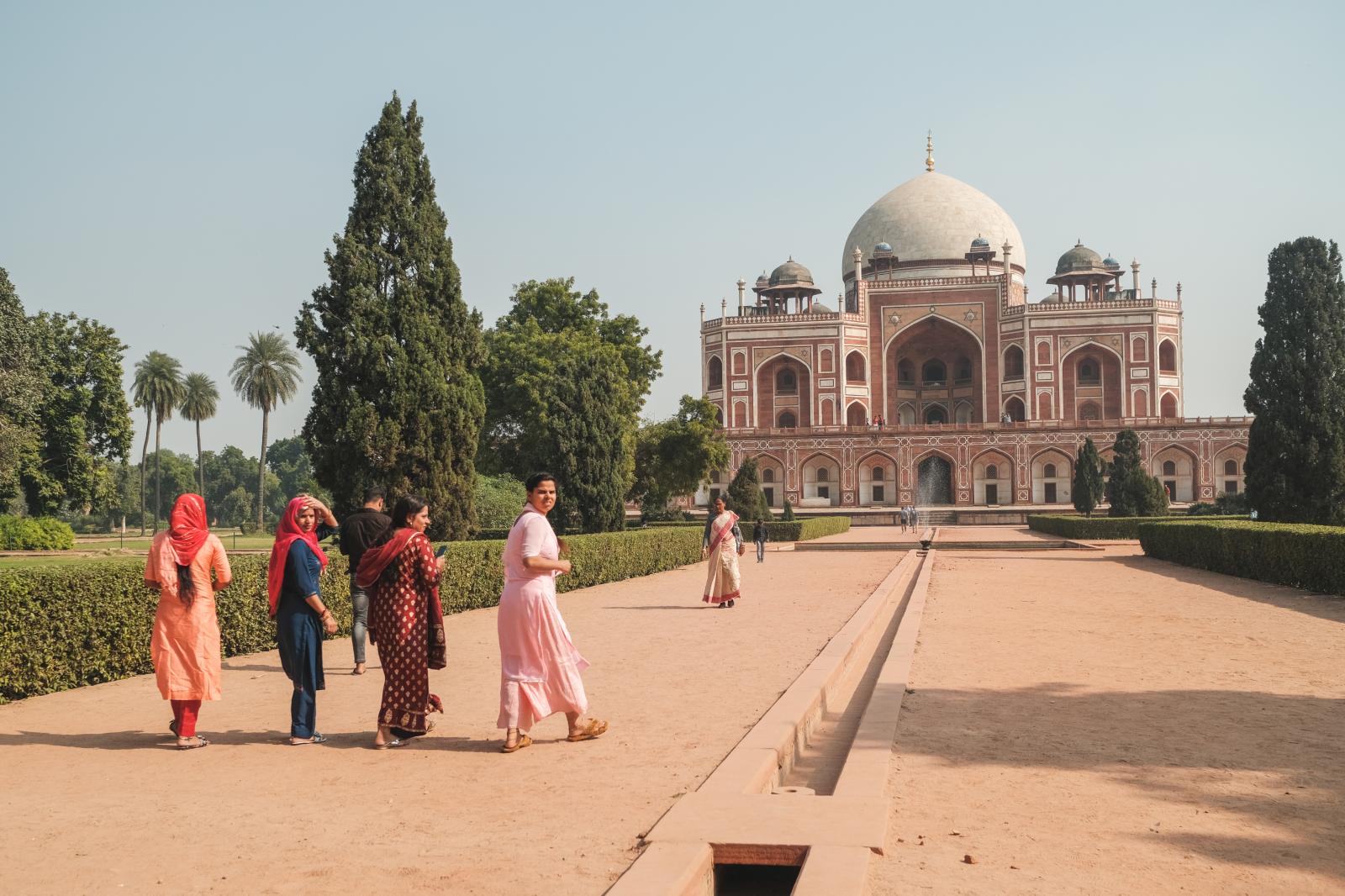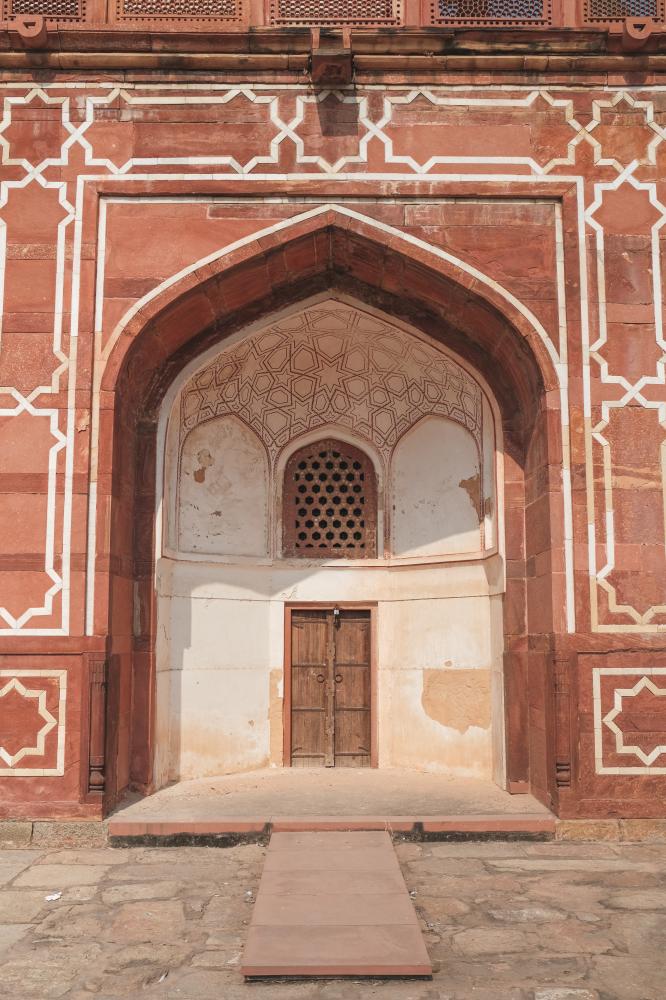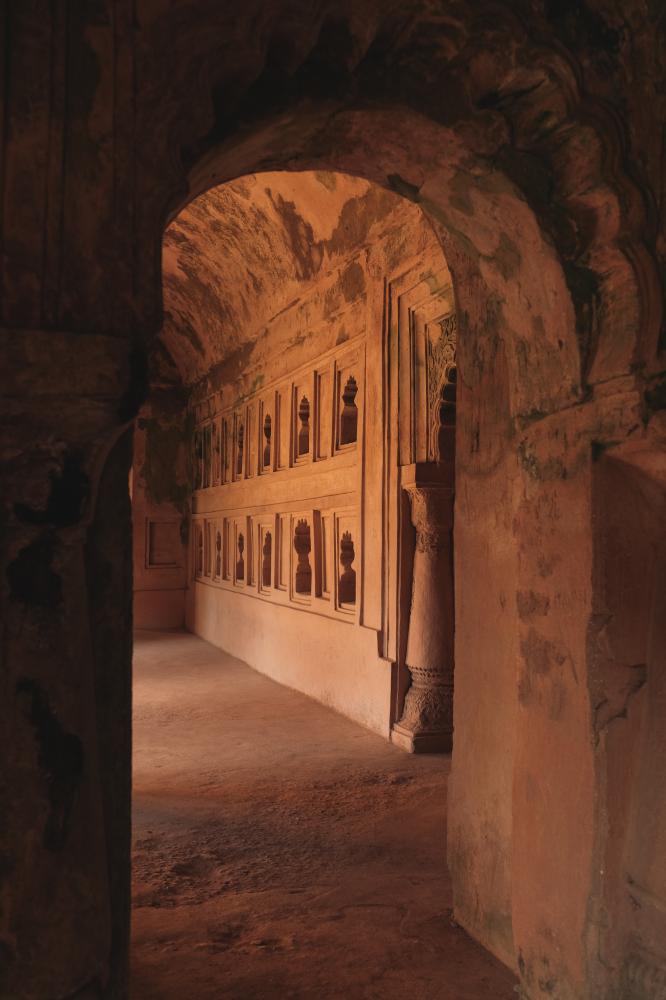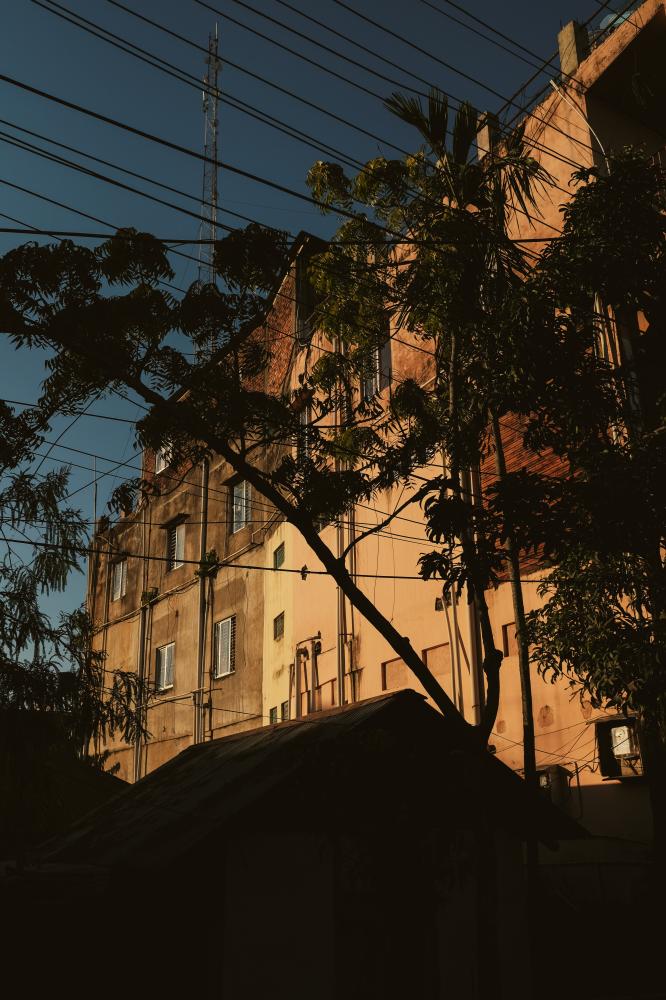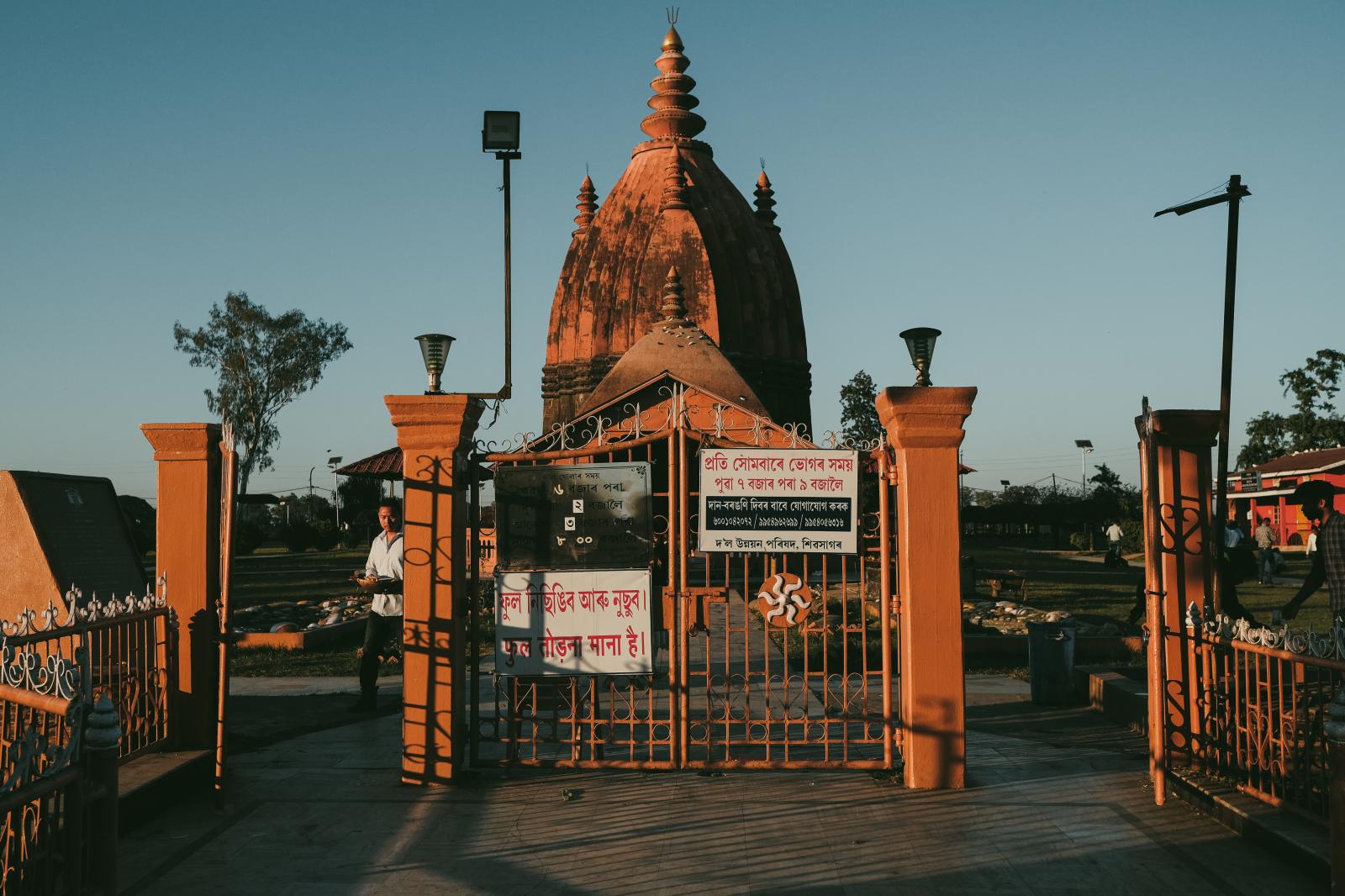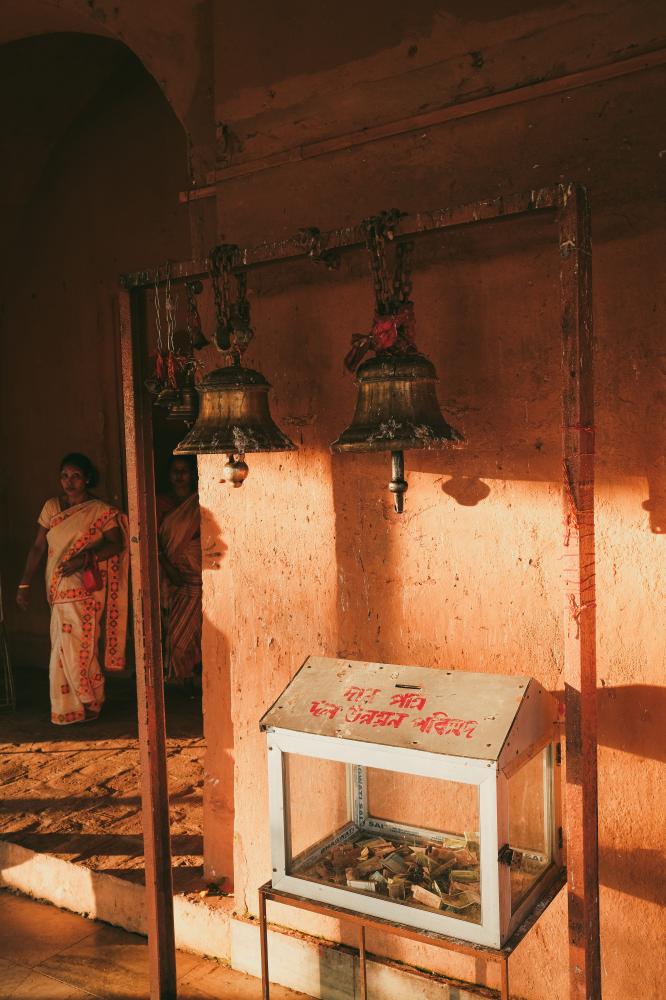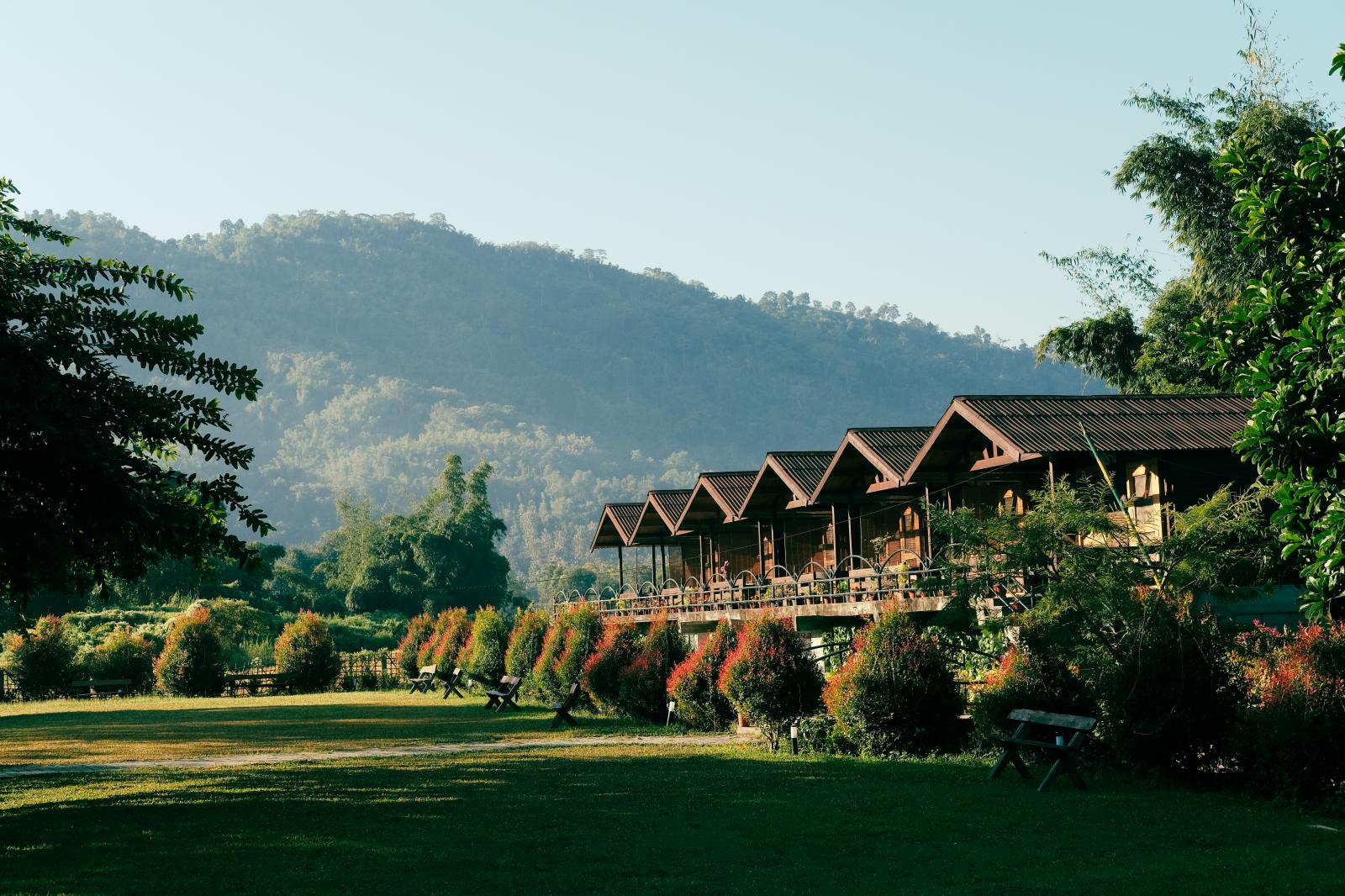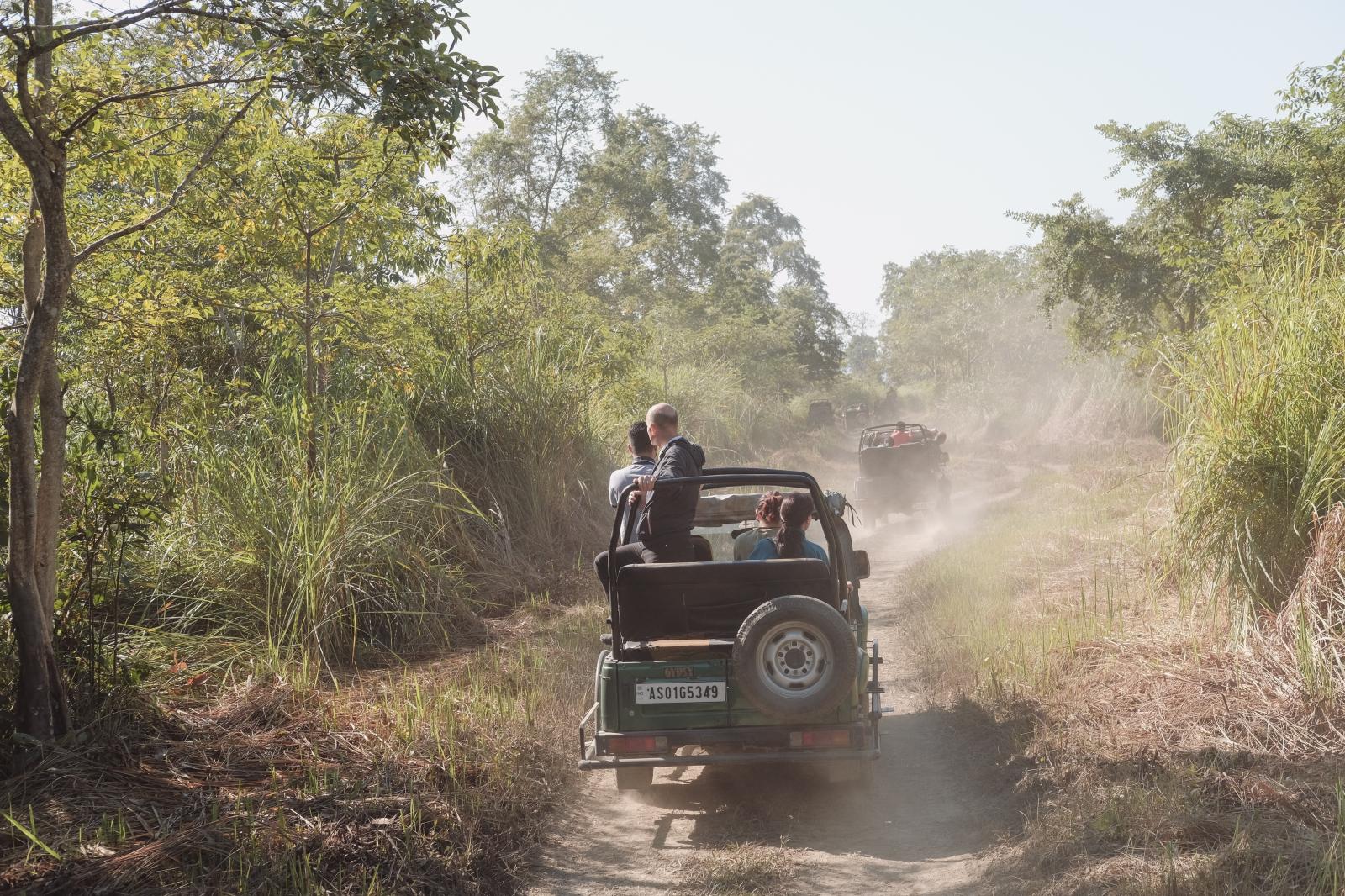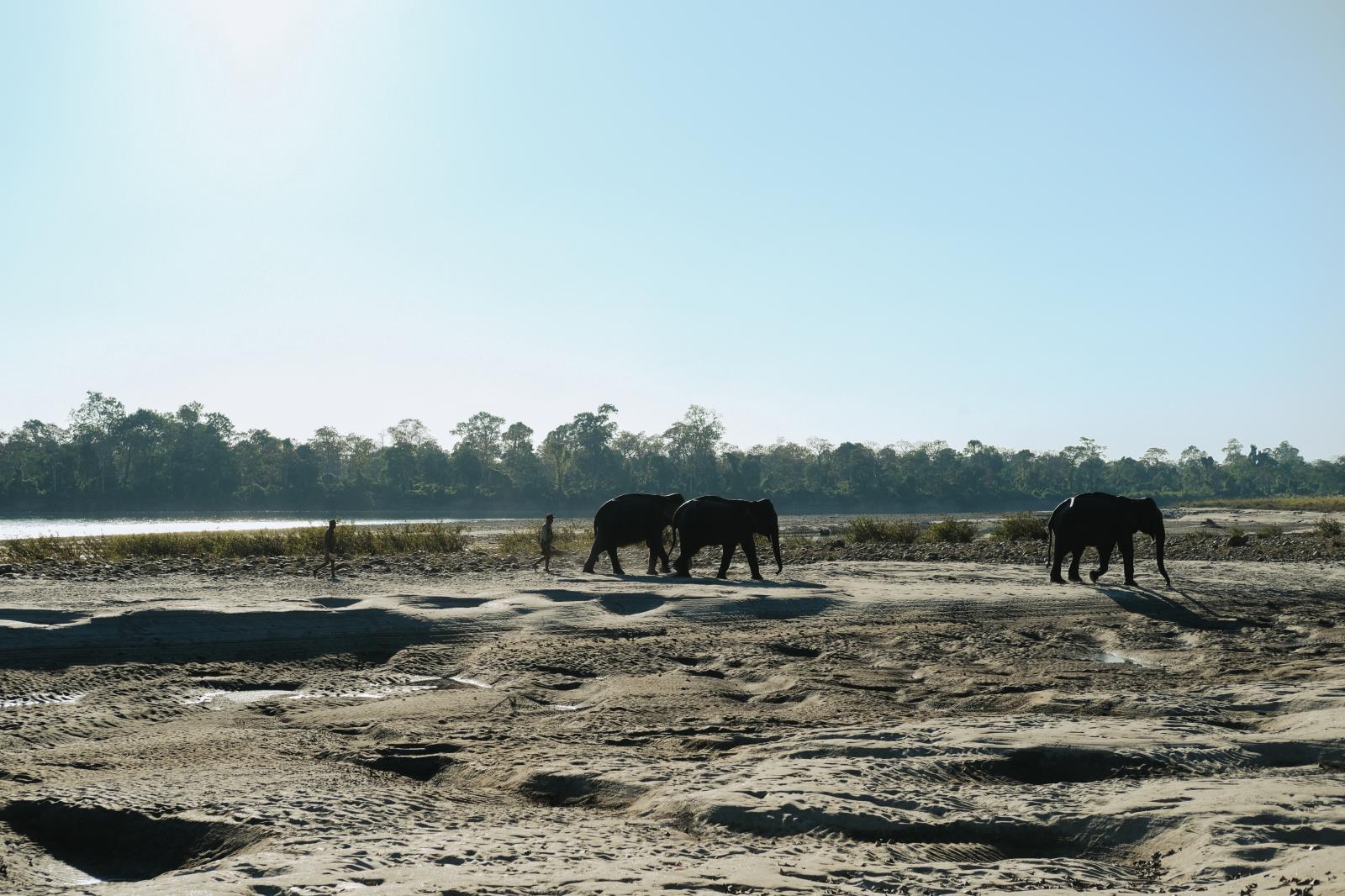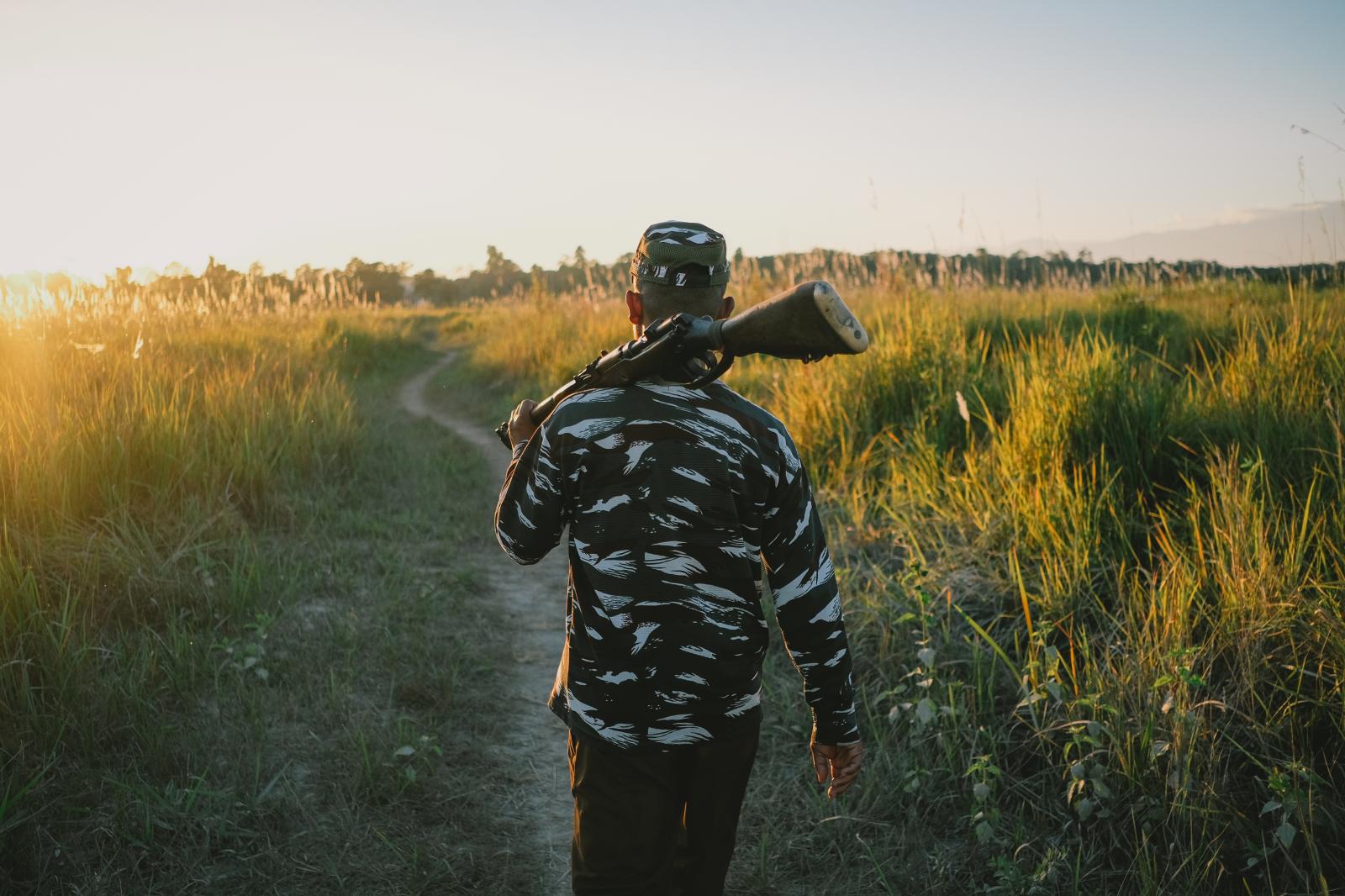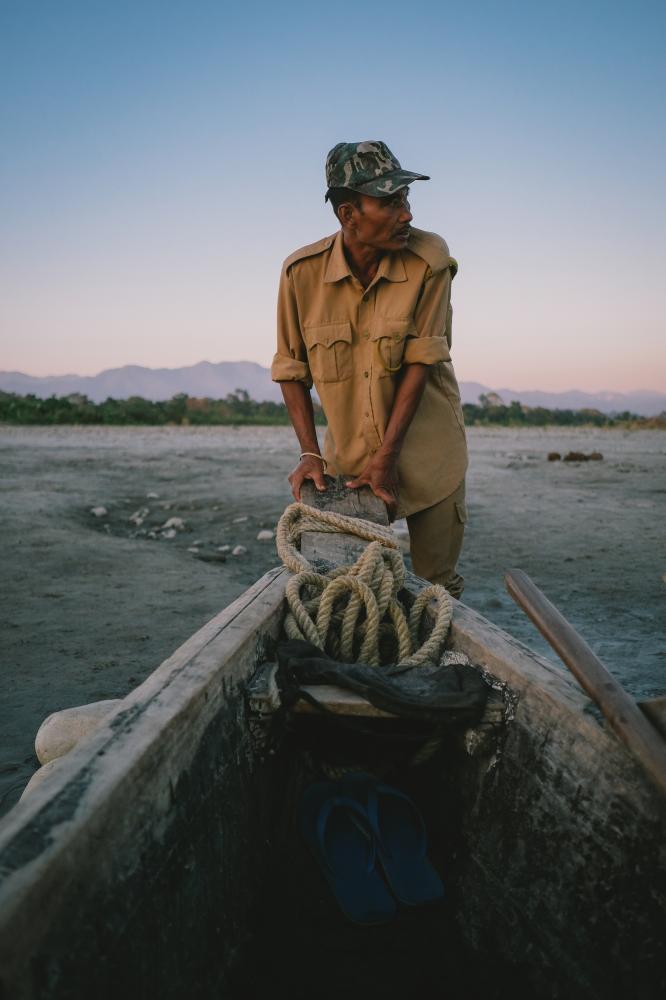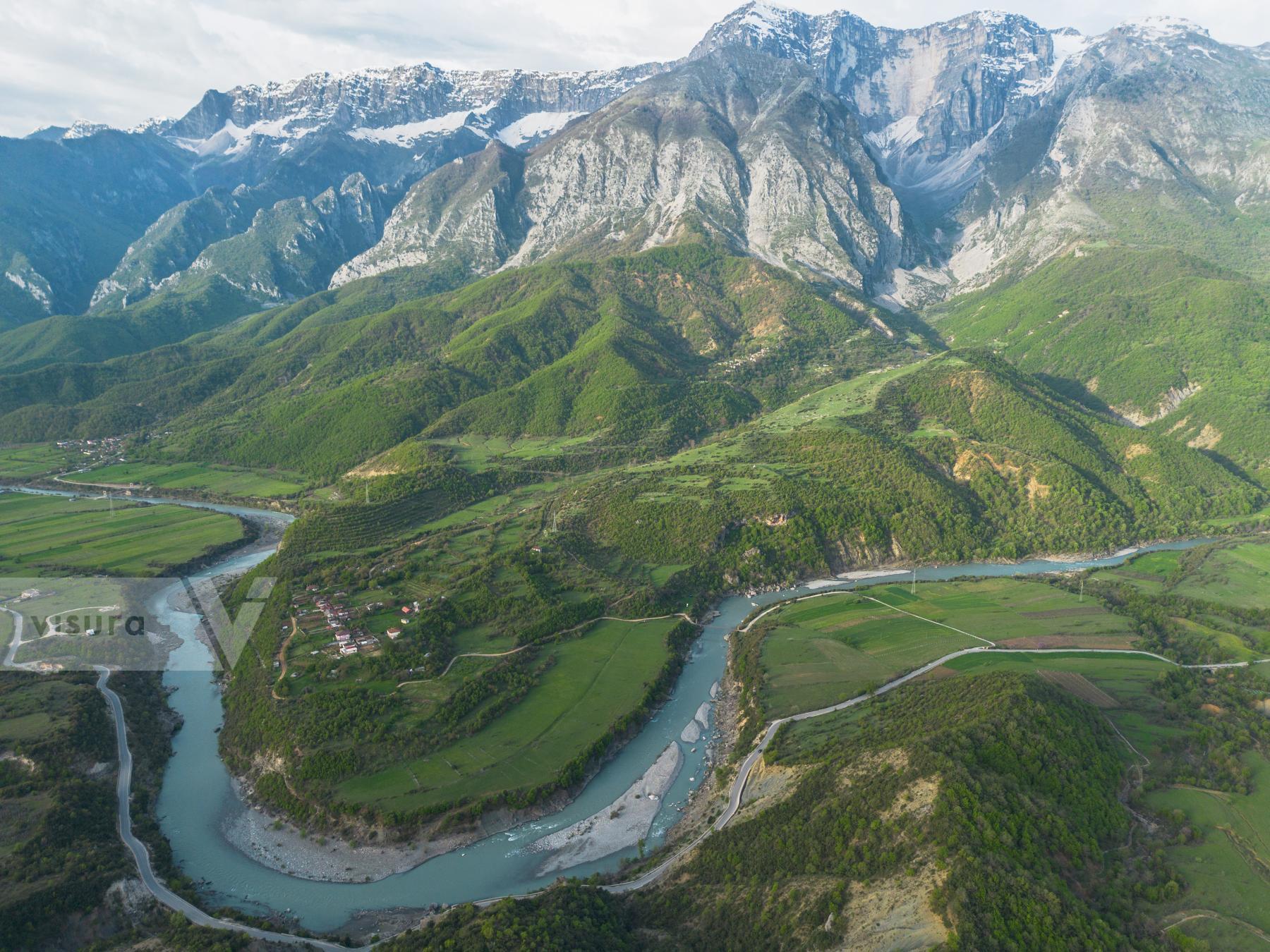
The Vjosa near the Greek-Albanian border. Considered one of Europe's last wild rivers, the Vjosa flows unobstructed for 270km to the Adriatic Sea. The river has been at the centre of a decade long campaign by locals, environmental activists and scientists to have it designated as a protected area, while numerous plans for hydropower dams and other infrastructure projects have been proposed along its course.
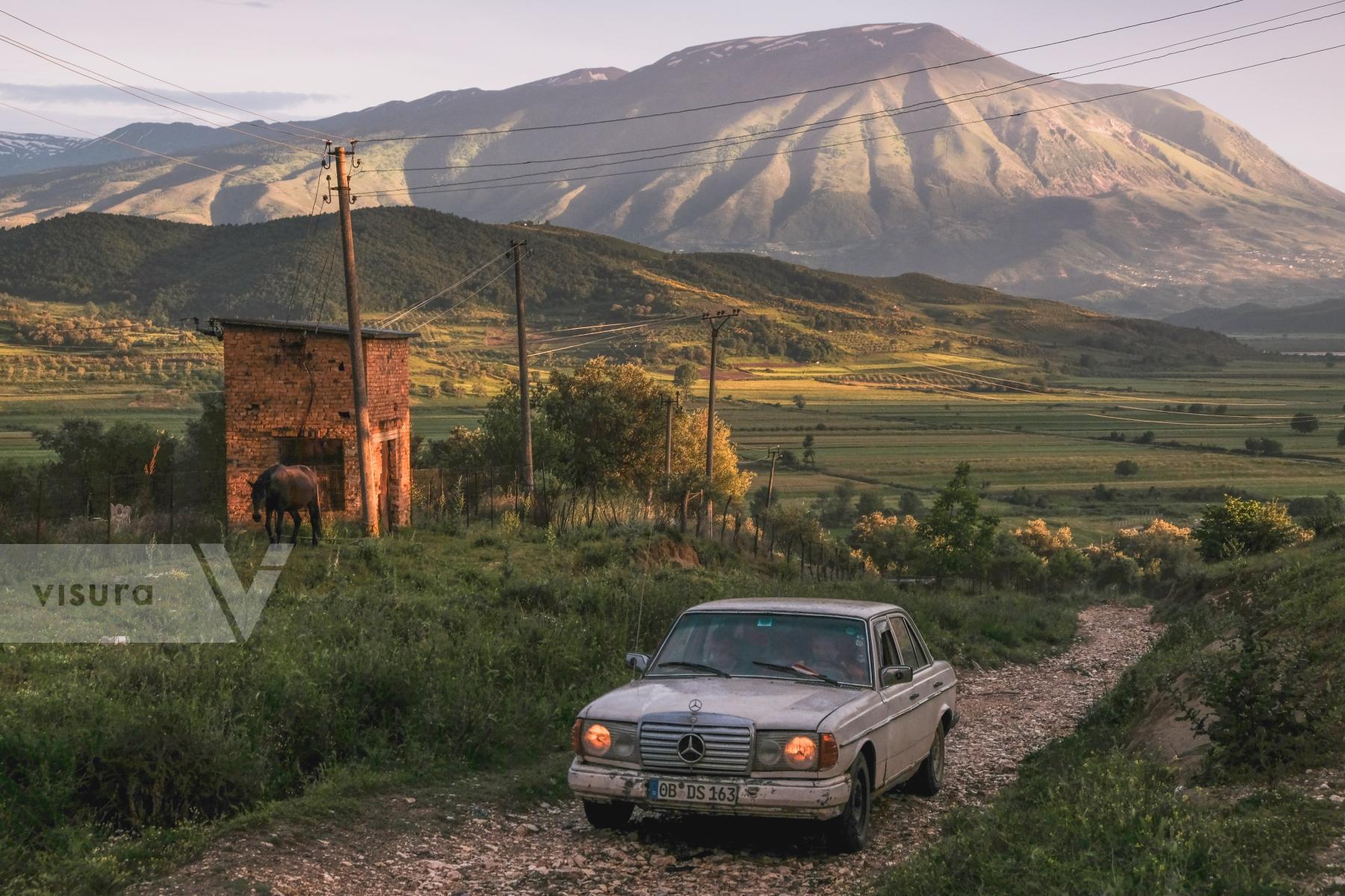
A car returning from farmland near the village of Kuta in southern Albania. Located between the sites for two proposed hydropower dams, most of the agricultural land below would have been flooded by a large reservoir. Locals, with the help of NGOs, successfully sued the government to stop construction of one of the dams, while the concession for the other was eventually cancelled.
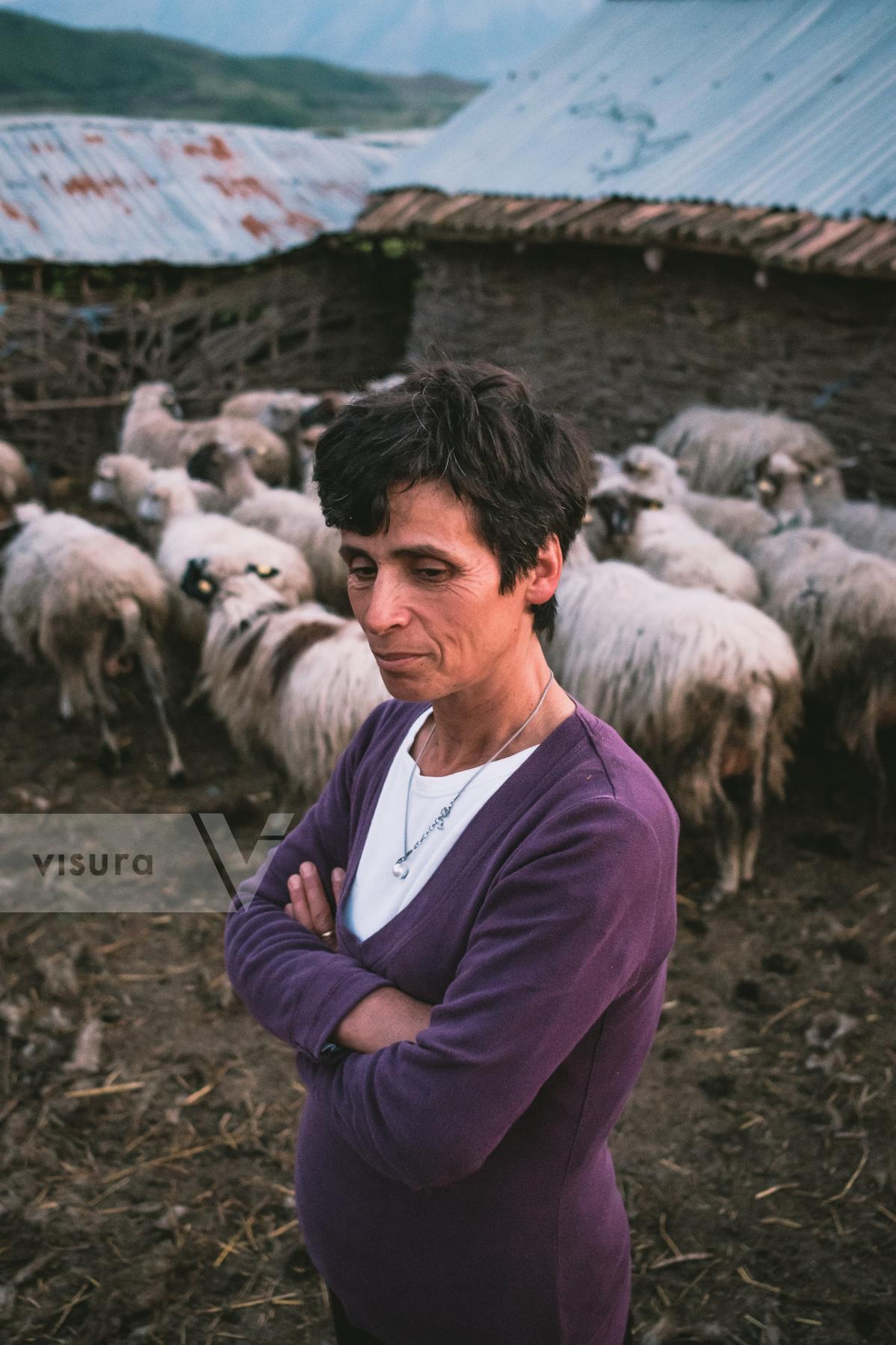
Ylli and her family raise sheep and grow crops on their land below the village of Kuta. The proposed construction of nearby dams would have created a large reservoir, flooding most of the fertile land in the surrounding areas. With few non-agricultural jobs in the area, most of the remaining people in Kuta would most likely be forced to relocate. With few employment opportunities in rural areas, many are hoping the creation of a Vjosa National Park would provide opportunities for eco-tourism related businesses.
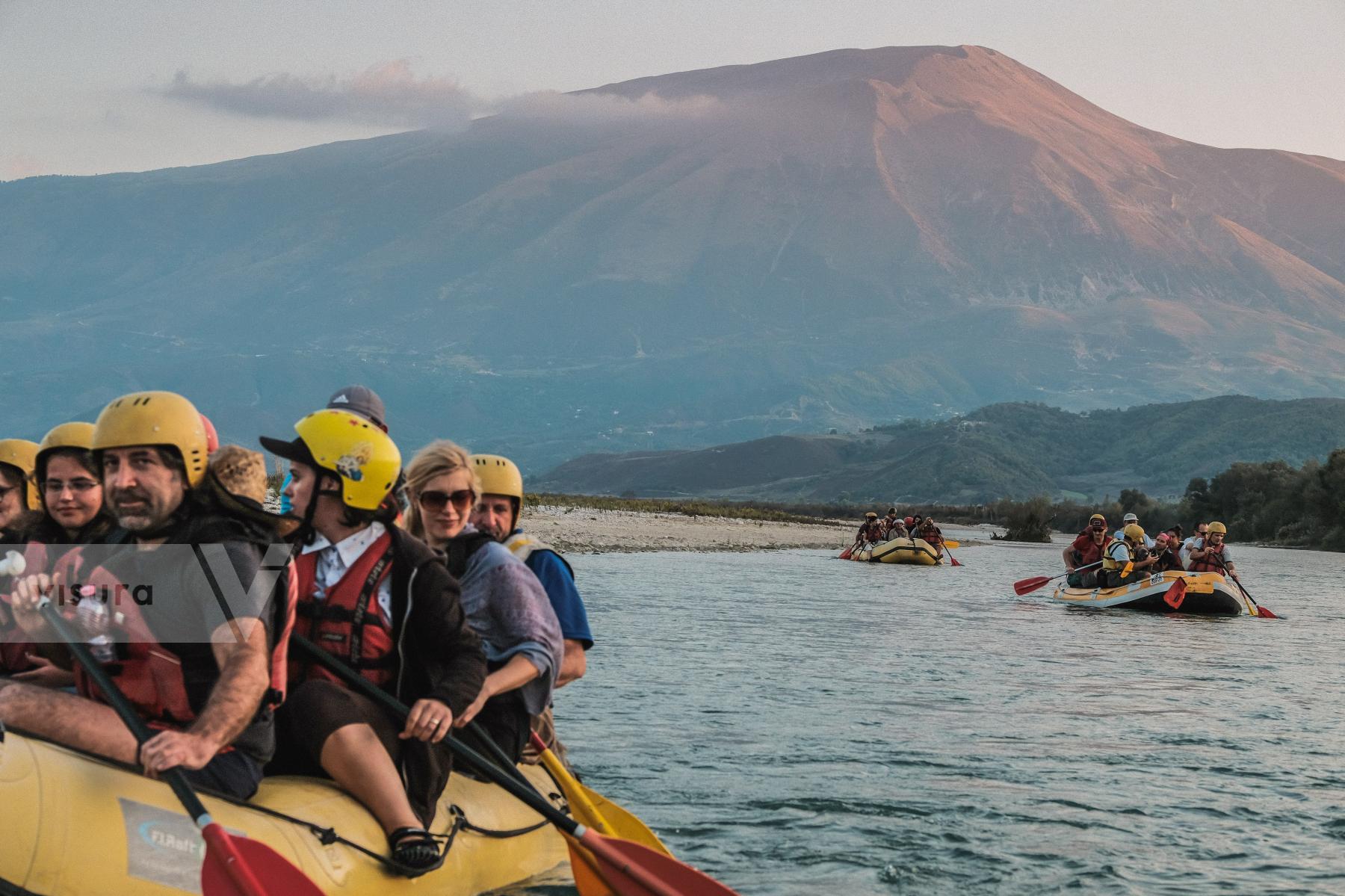
A group of scientists and activists raft down the Vjosa river, in between the proposed sites of two contested large scale hydropower dams near the village of Kuta, Albania. The Vjosa has been at the centre of the Save the Blue Heart of Europe campaign, which aims to end hydropower development on rivers throughout the Balkan peninsula.
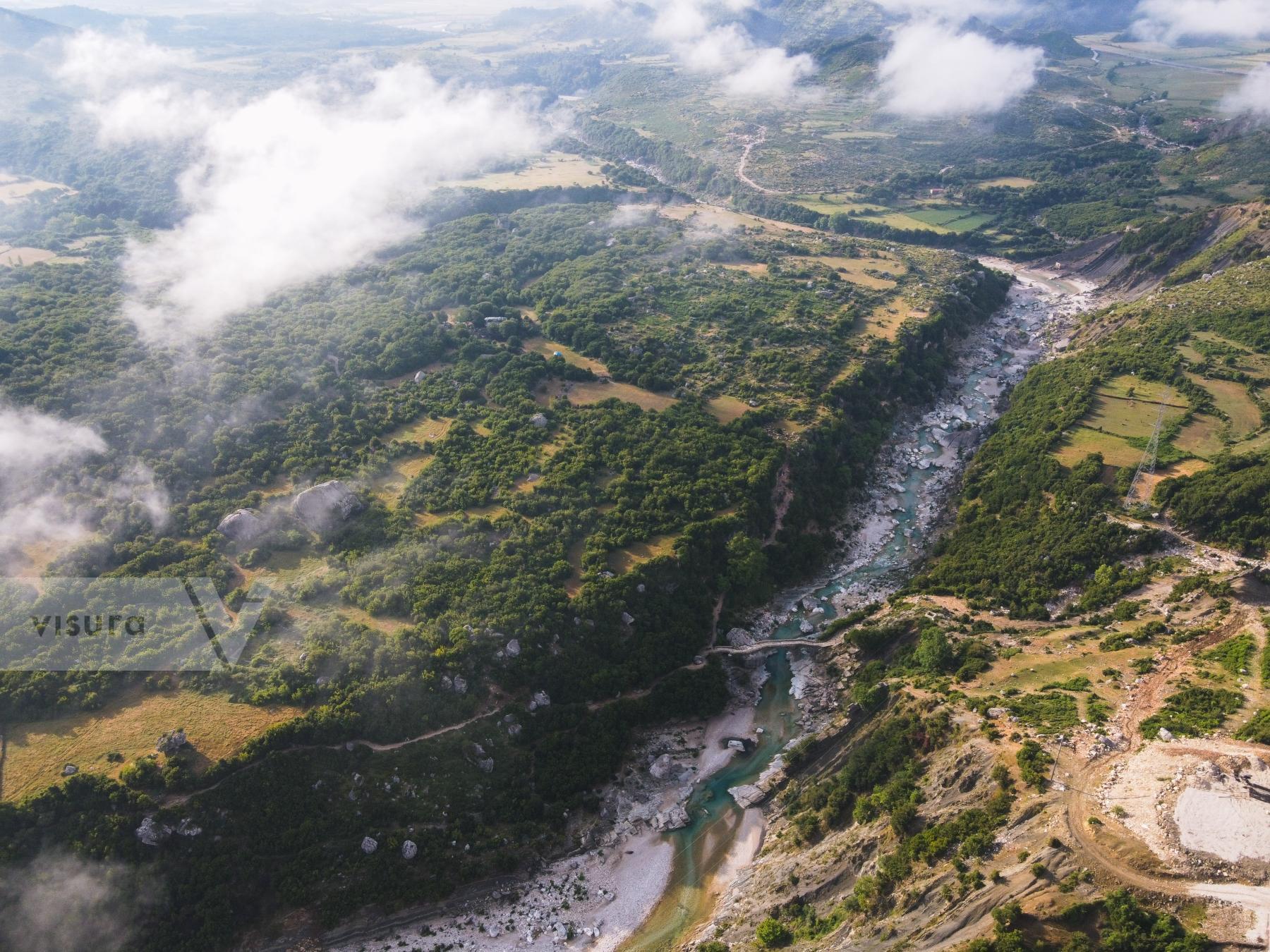
The Shushica river, near the village of Brataj in southern Albania. The Shushica is one of several unspoiled tributaries of the Vjosa, contributing to the natural functioning of the entire river system, and is still a crucial water source for local agricultural communities. Until recently, multiple small scale dams were slated for construction on the Shushica, but the tributary is now included in the boundaries of the Vjosa Wild River National Park.
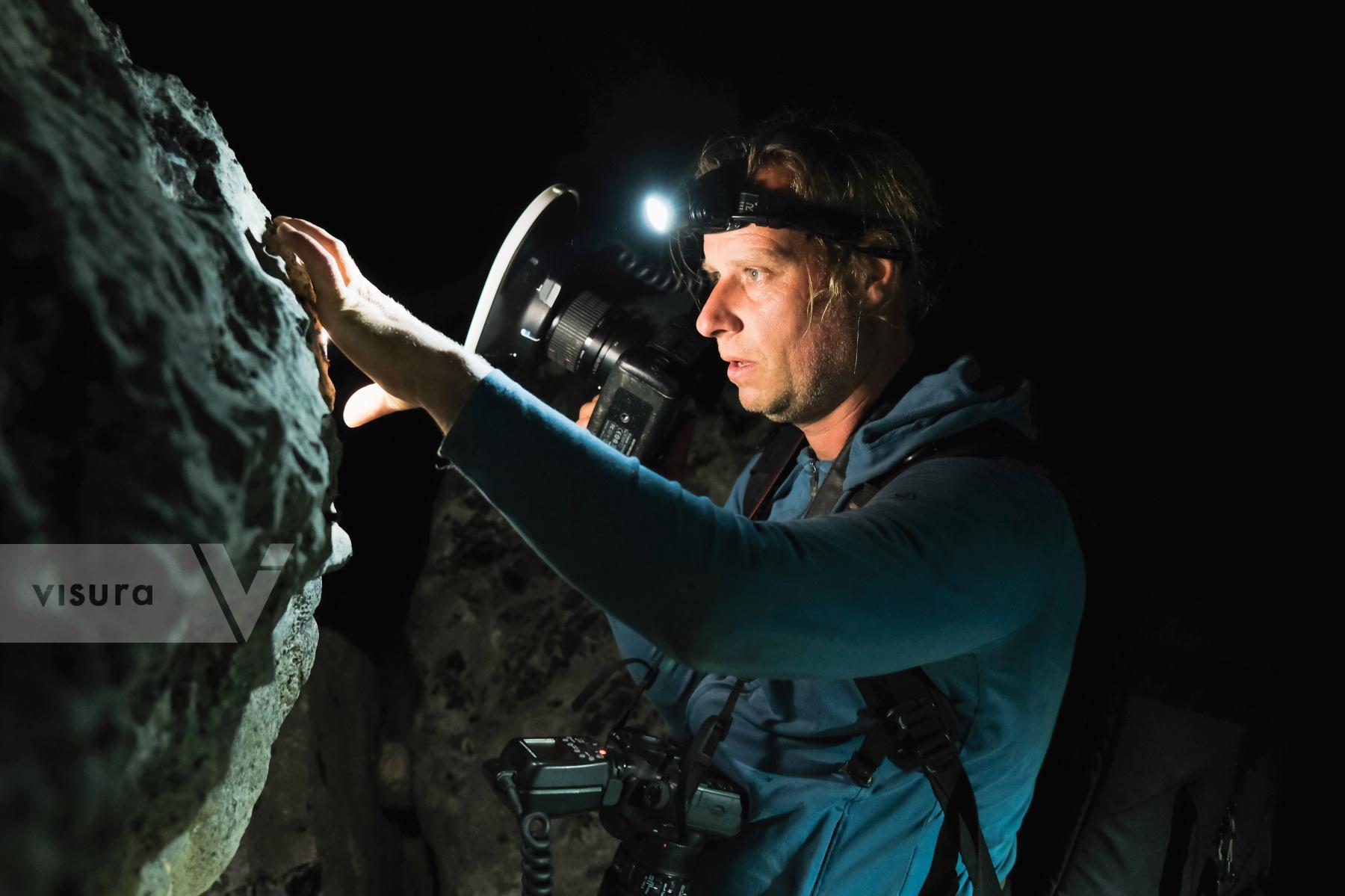
Gernot Kunz, a Macro Entomologist from the University of Vienna, photographs insects in the riverbed of the Shushica river in southern Albania. The Shushica is a largely unexplored tributary of the Vjosa river, where scientists have found new species of wildlife, or species that have gone extinct elsewhere in Europe.

Gernot Kunz a Macro Entomologist at the University of Vienna holds an unidentified species of Scorpion collected near the Vjosa river in Tepelenë, southern Albania.
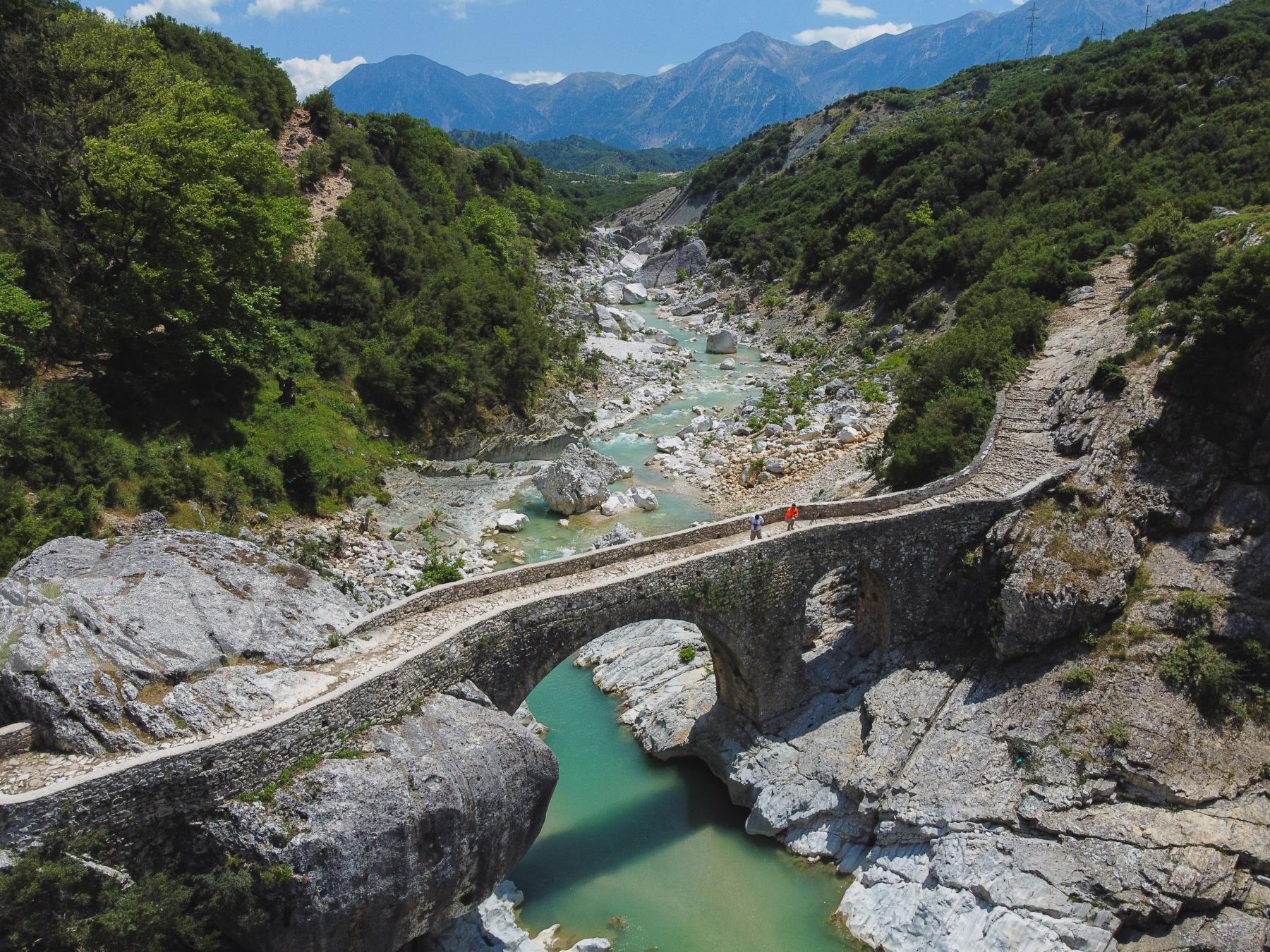
A 16th Century Venetian bridge on the Shushica river near the village of Brataj, Albania. Locals regularly cross this bridge with their herds of animals, taking them to graze in surrounding pastures. The river provides an important water source for the communities, who rely on it for agricultural production.
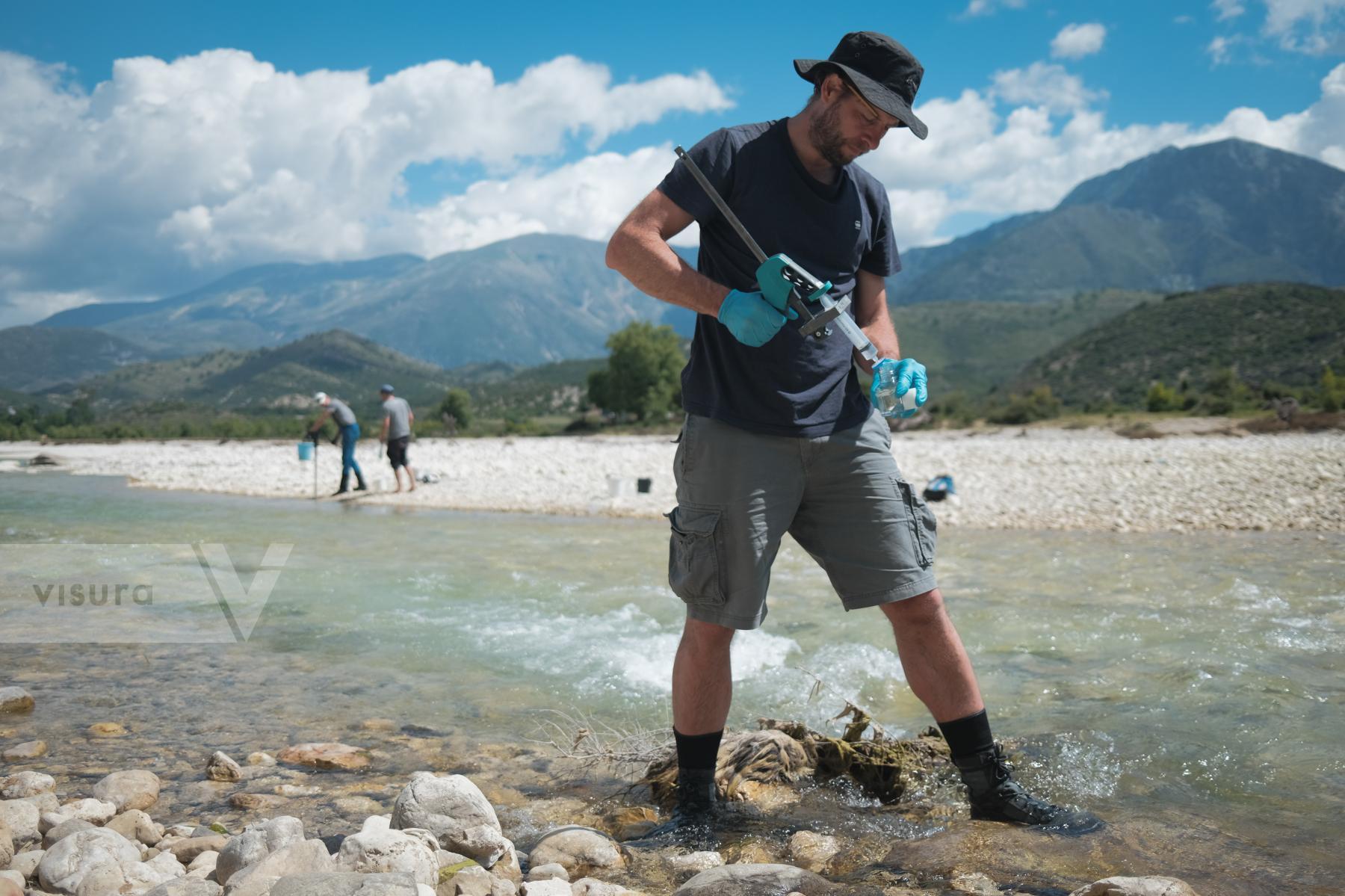
Gabriel Singer from the University of Innsbruck Fluvial Ecosystem Ecology Lab, filters water from the Shushica river for chemical analysis. An international group of scientists has been studying the Vjosa and its tributaries for several years, compiling their findings about the biodiversity and functions of the river into several reports, and advocating for more stringent protection measures.
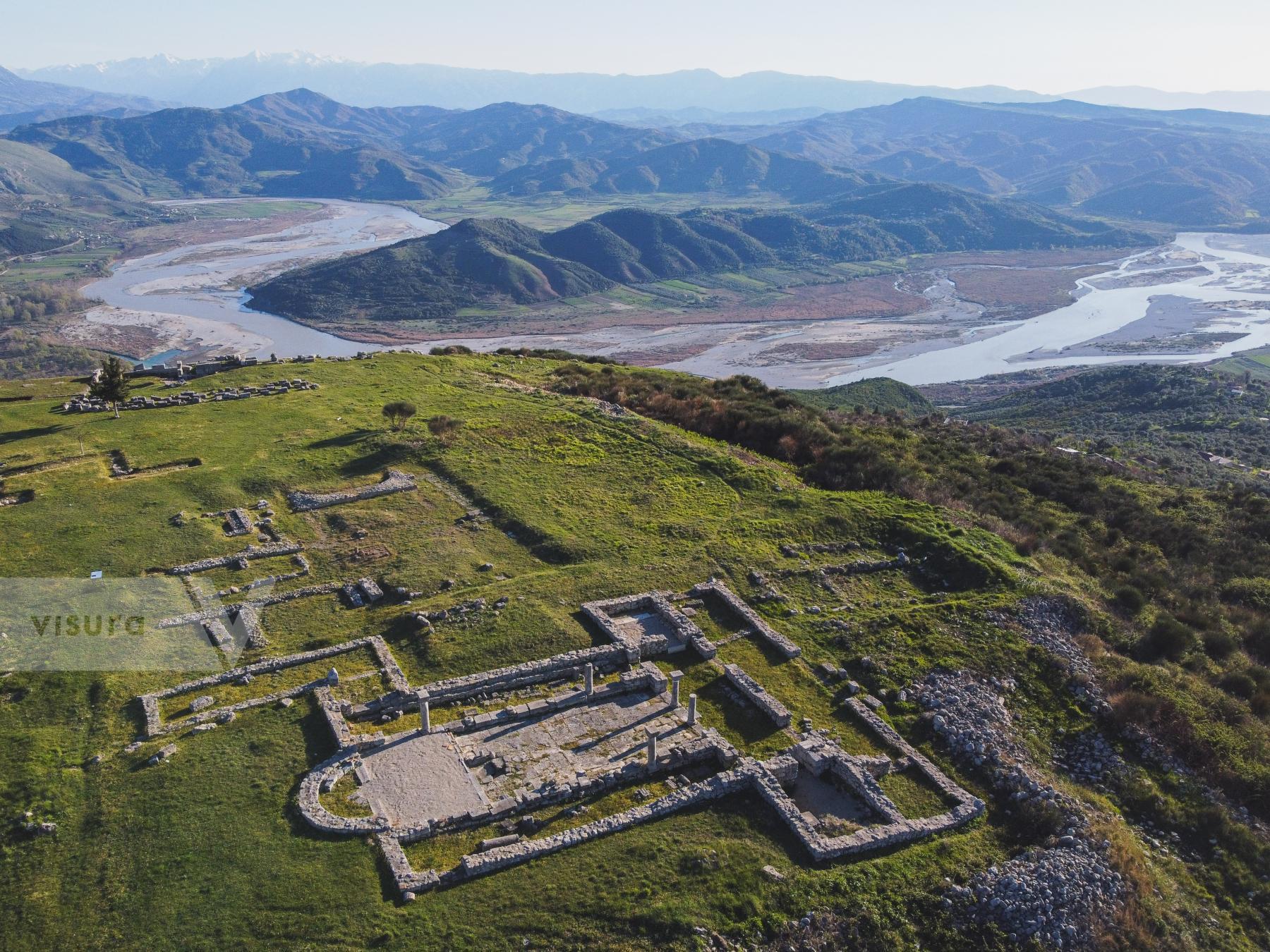
The ruins of the ancient Illyrian city of Bylis, dating from the 4th century BC, near the village of Poçem. Settlements have been established along the banks of the Vjosa for centuries.
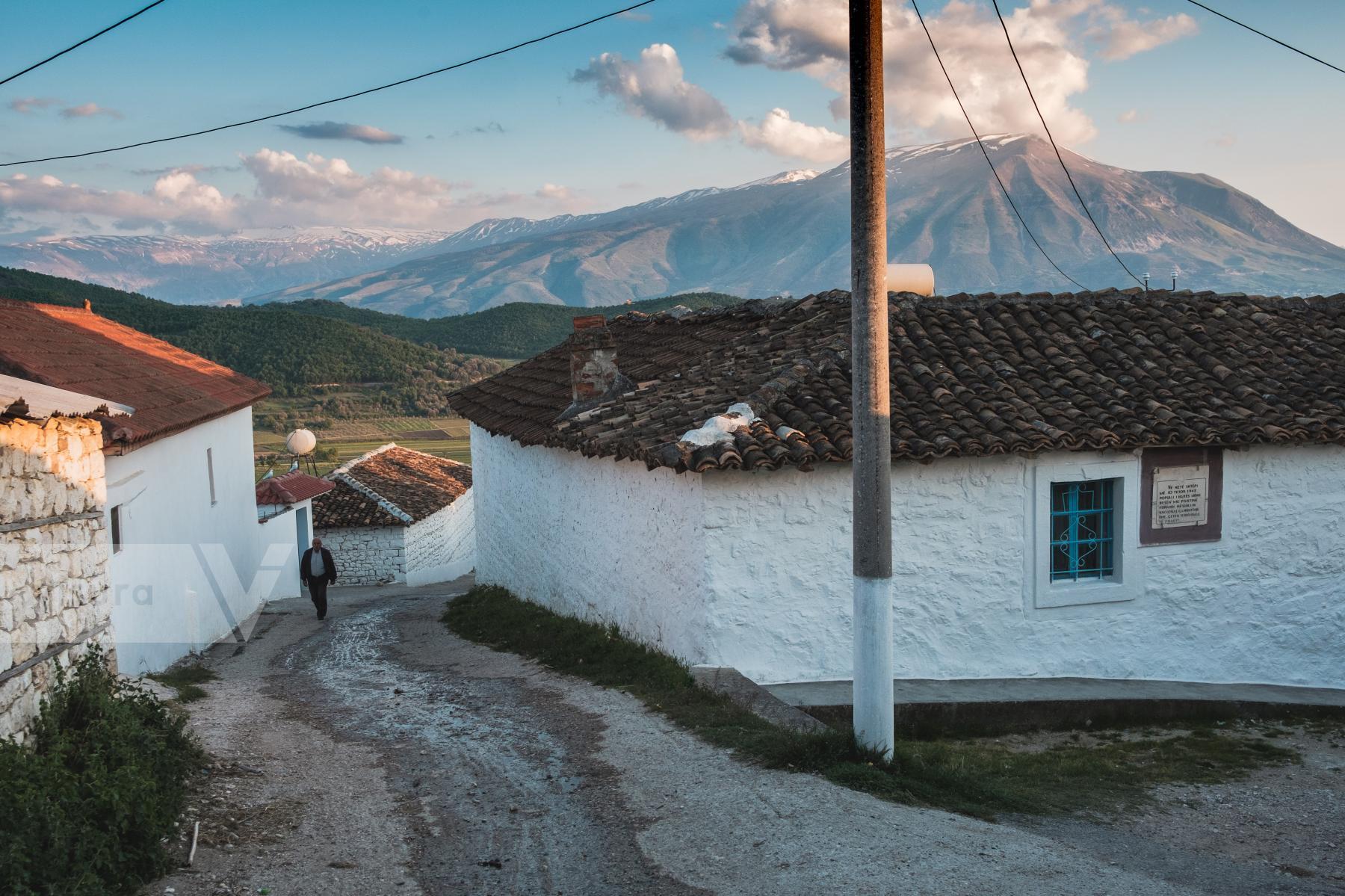
Kuta, a hillside village overlooking the Vjosa. During Albania's communist regime, Kuta and the surrounding villages were organised into cooperatives, playing an important role in the country's agricultural industry. Since the regime's downfall in the 1990s, the area has experienced widespread depopulation and poverty, with those remaining mostly subsisting on farm work.
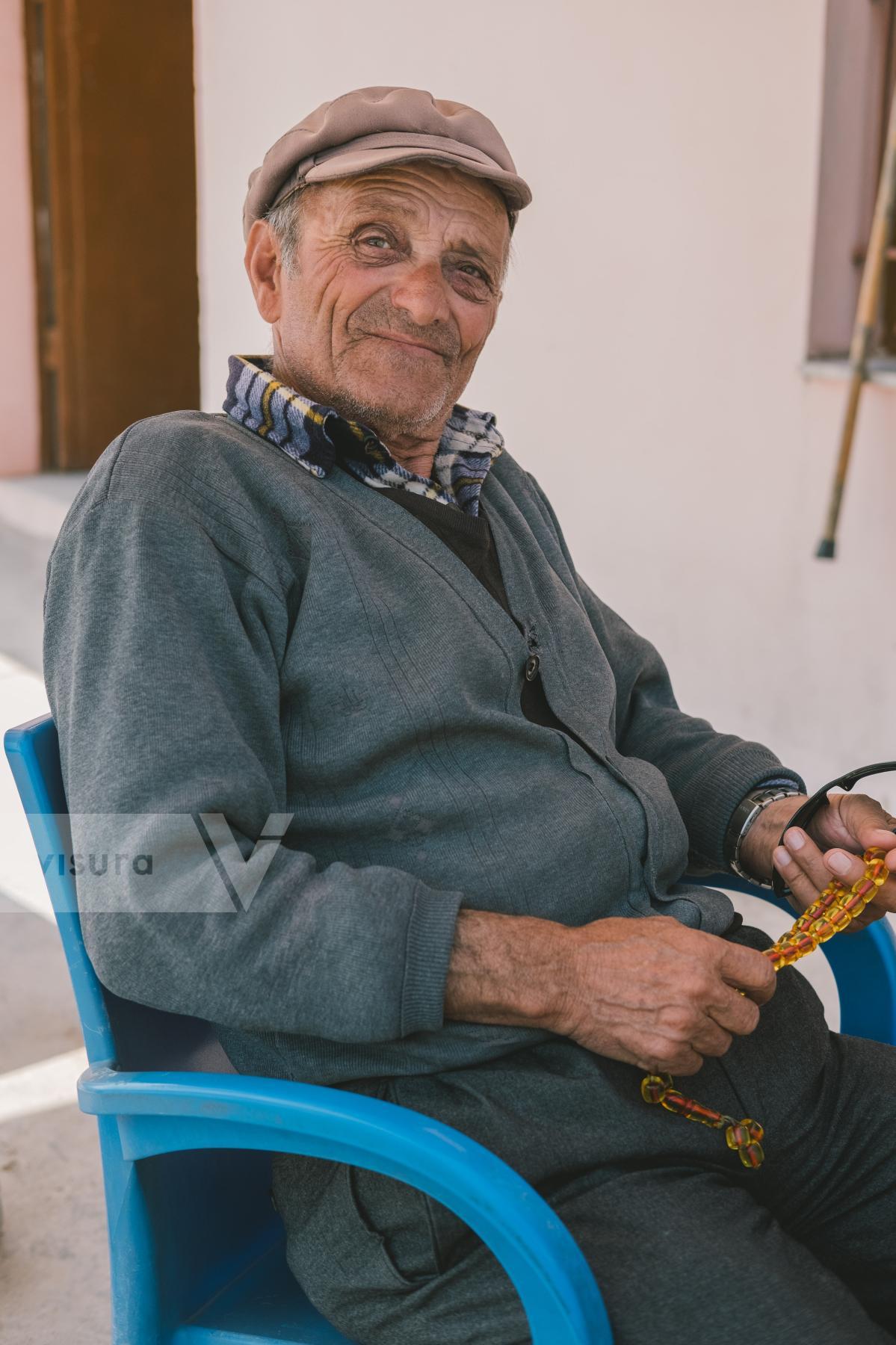
Haxhi, a pensioner in Kuta. Haxhi worked in a cooperative set up with nearby villages during the beginning of Albania's communist regime in the 1950s. Villages along the Vjosa played a central role in the country's agricultural industry at the time.
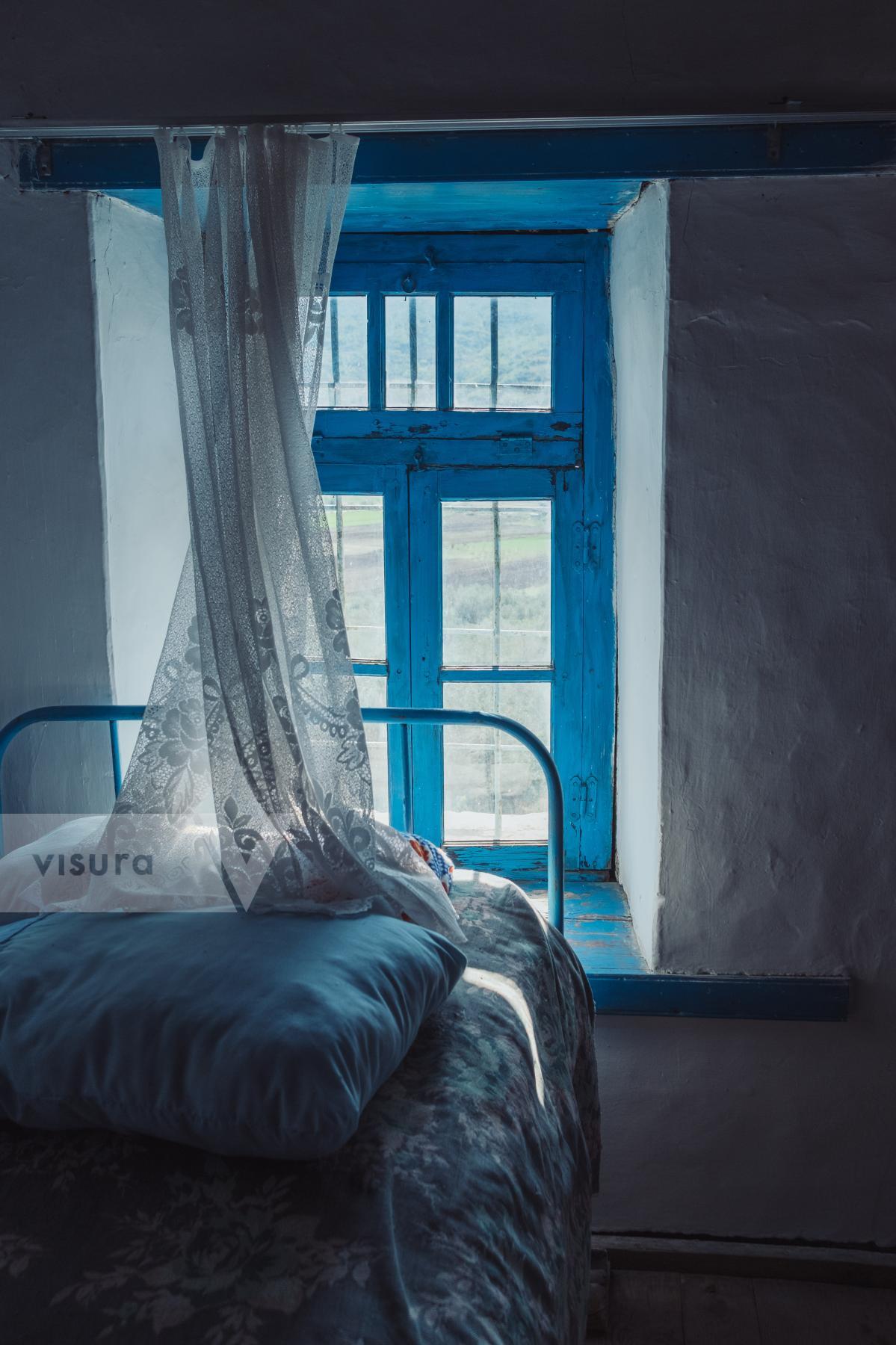
Interior, abandoned house, Kuta. Populations in rural villages like Kuta have been declining, with young people leaving to find work abroad or in the capital, Tirana. Many villagers who remain are helped by family members abroad who send back part of their earnings.

Rronja, a retired teacher in Kuta. Like many in the village, she does not hold documents for her land, due to the administrative chaos that followed the end of communism in the 1990s. If nearby dam projects went ahead, she and many others would have no means of claiming compensation for their lost lands.
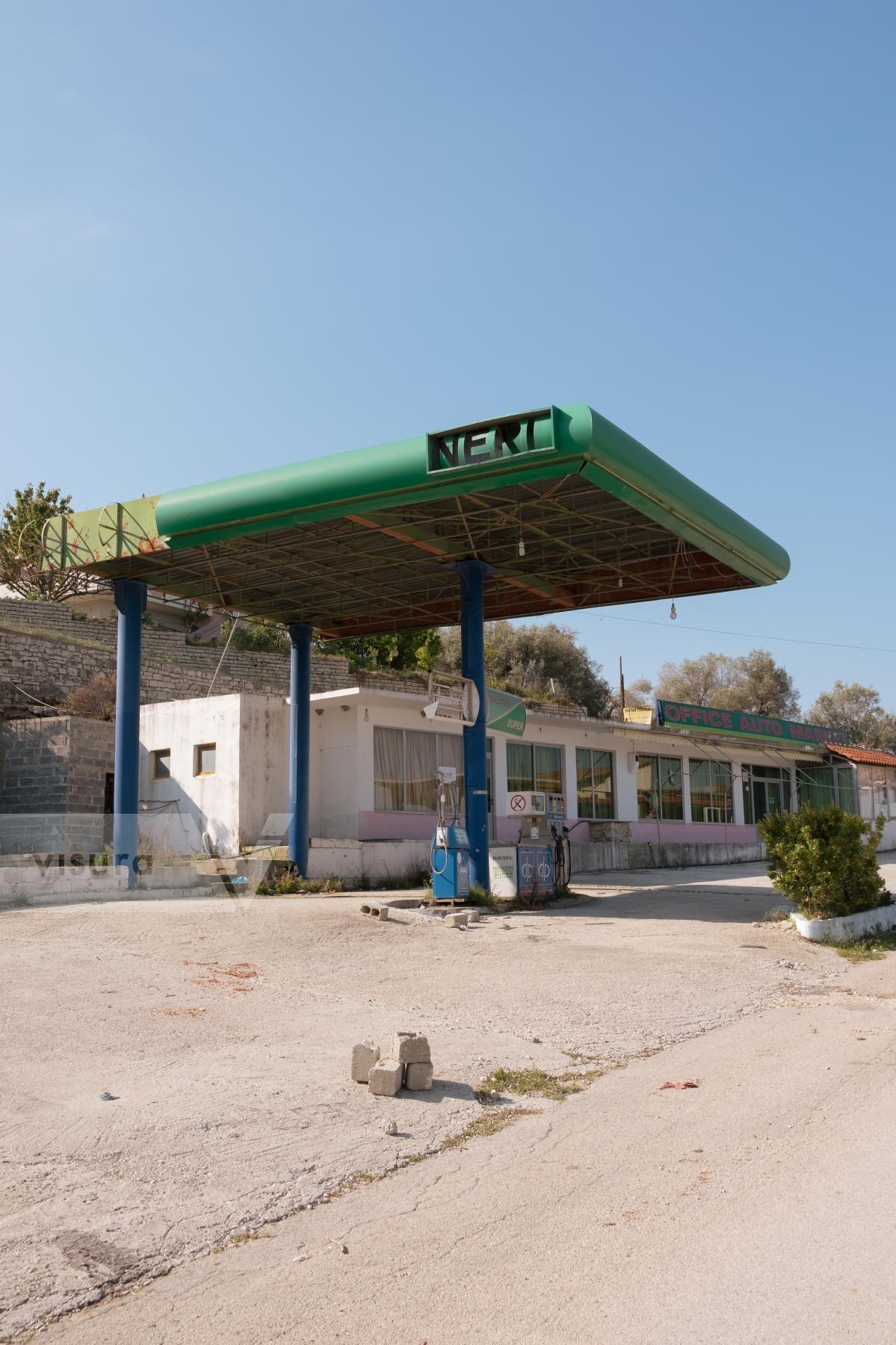
An abandoned petrol station on the road to Kuta. Once at the heart of Albania's agricultural industry, the poor quality road and lack of investment have left Kuta and nearby villages along the Vjosa largely cut off.
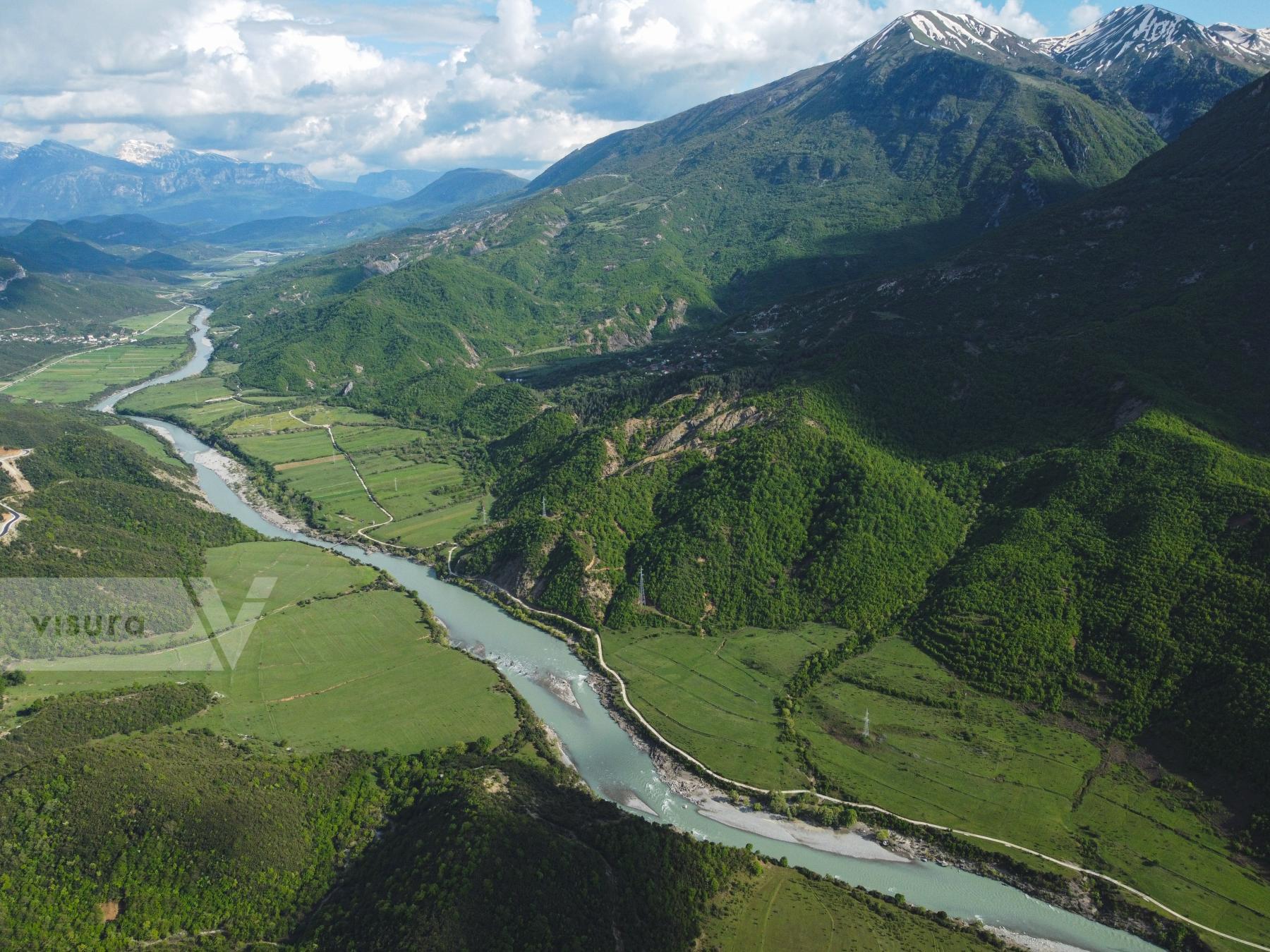
The Vjosa, near the town of Këlcyrë in southern Albania.
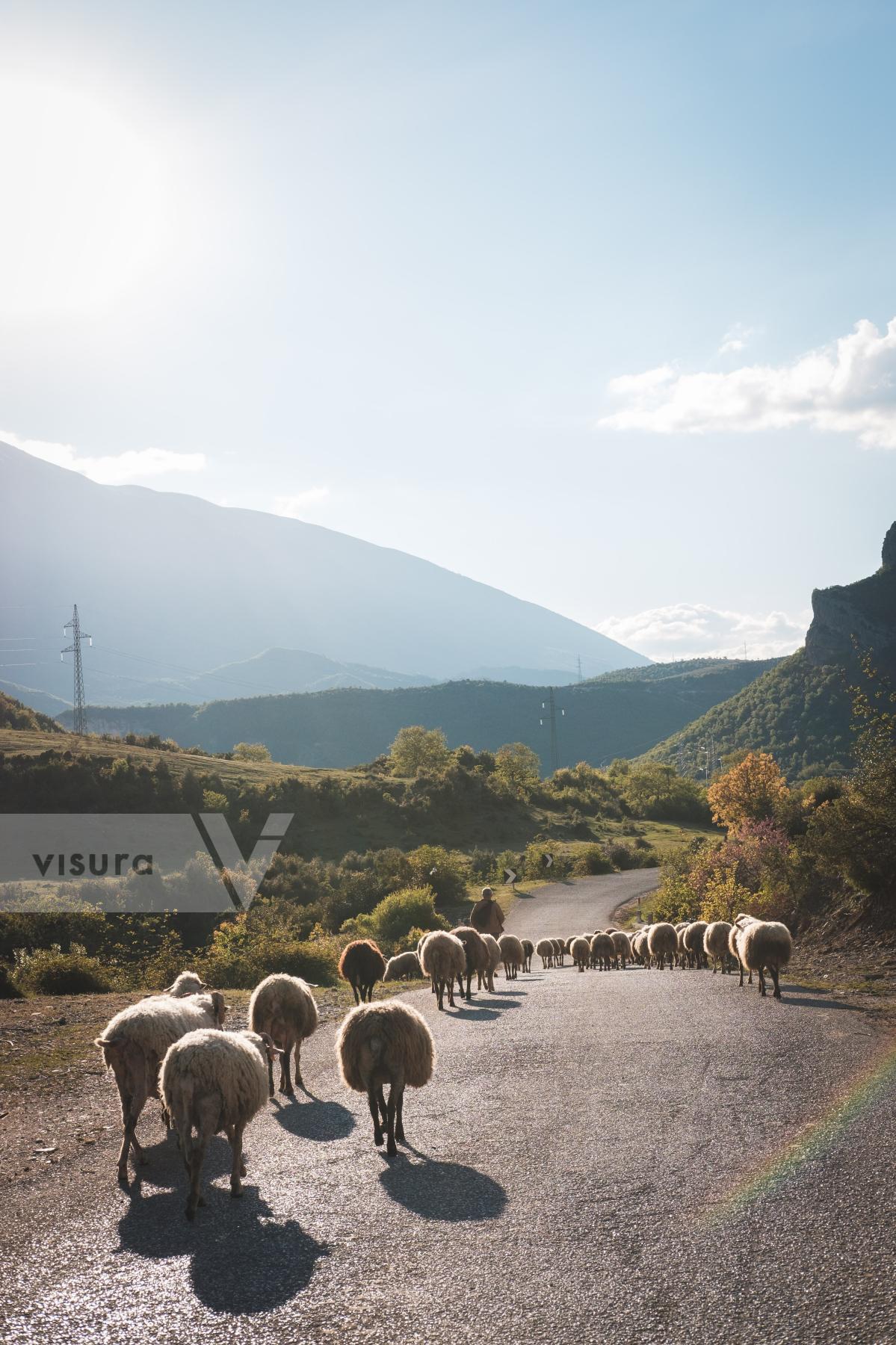
A shepherd on his way towards Përmet, a town on the upper stretch of the Vjosa river.
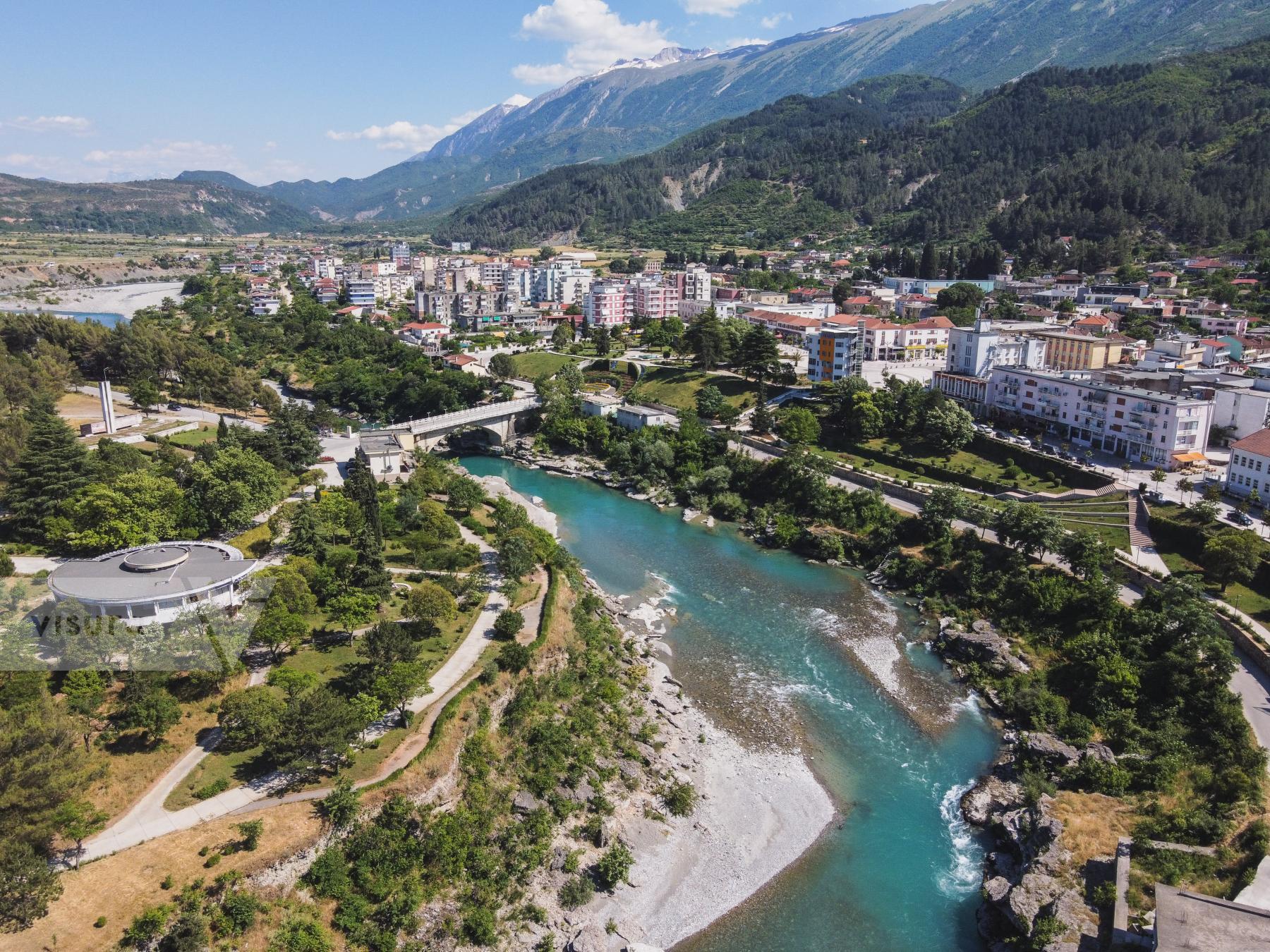
Përmet, a cultural hub in southern Albania, well-regarded for its traditional music, art and slow-food practices. The Vjosa is integral to plans for growing the area’s tourism industry, with the river seen as an important draw for rafting and kayaking excursions.
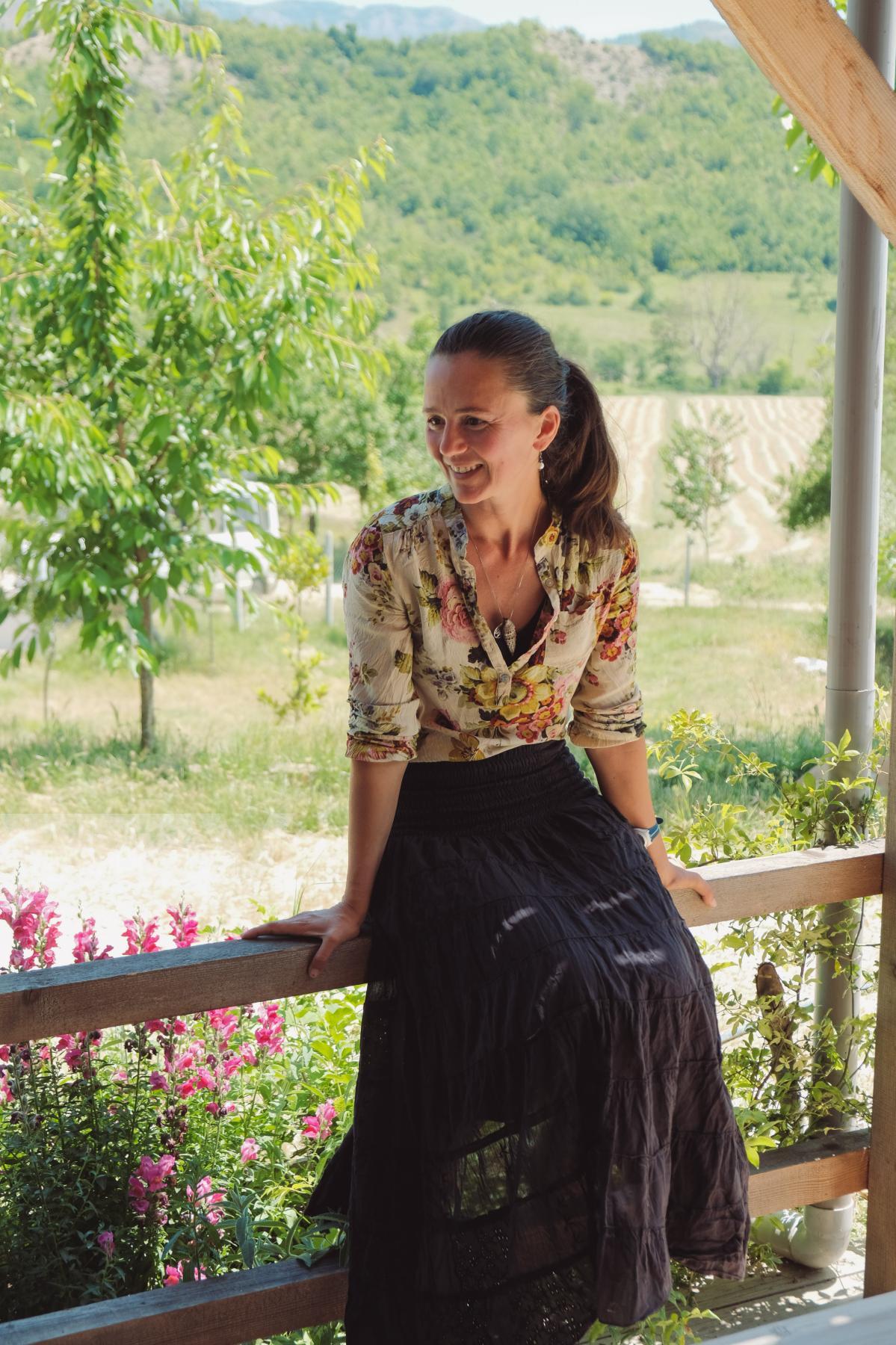
Elona Bejo, the owner of Ferma Albanik, an eco lodge close to the Vjosa river. Born nearby, Elona and her family moved to the capital city, Tirana, when she was young. As an adult, Elona returned to have more of a connection with nature and the land. She has been an outspoken activist against plans for oil exploration and hydropower dams on the Vjosa,
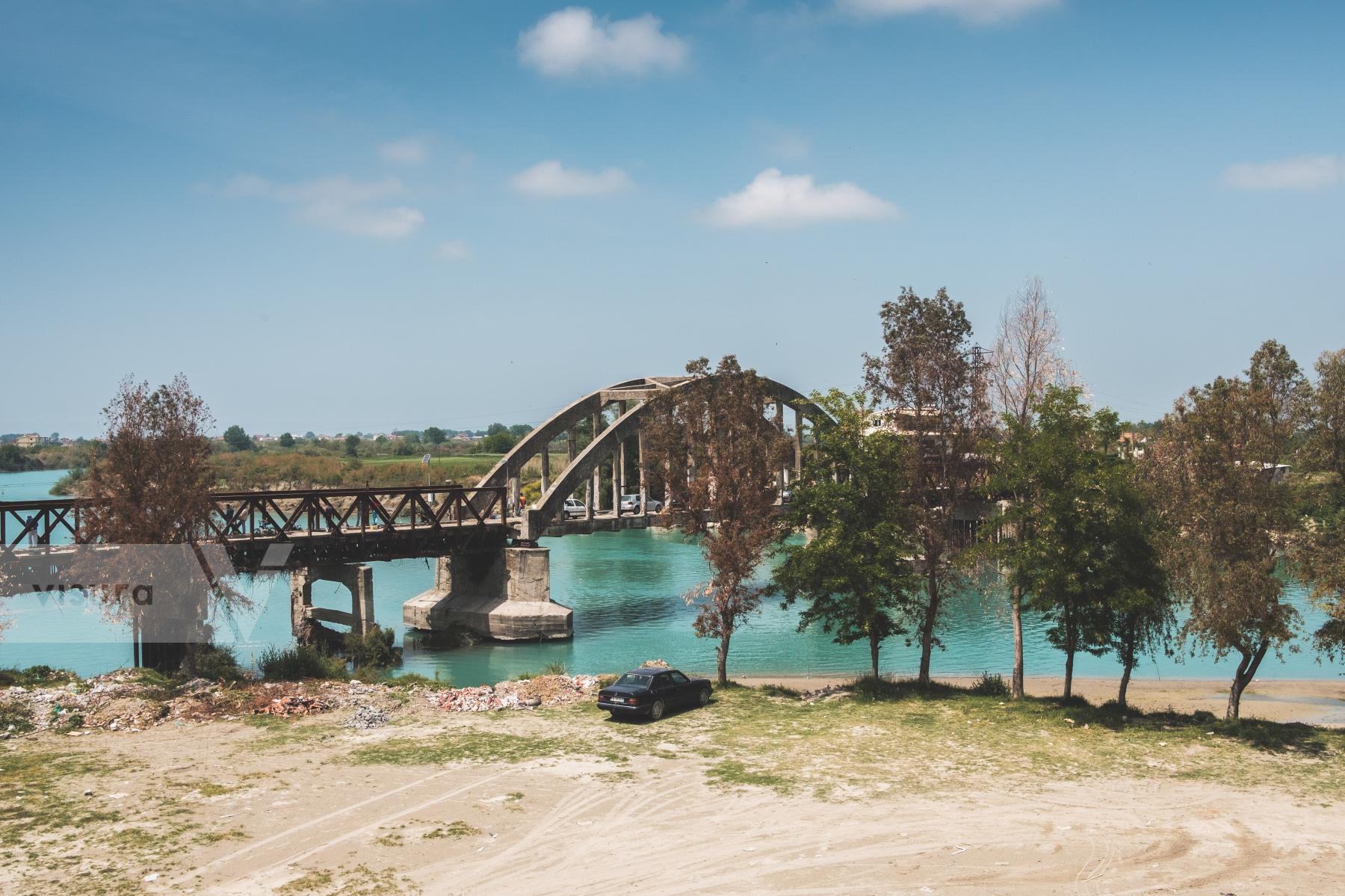
A bridge over the Vjosa at Novosela, close to the Adriatic sea and the river's delta region.
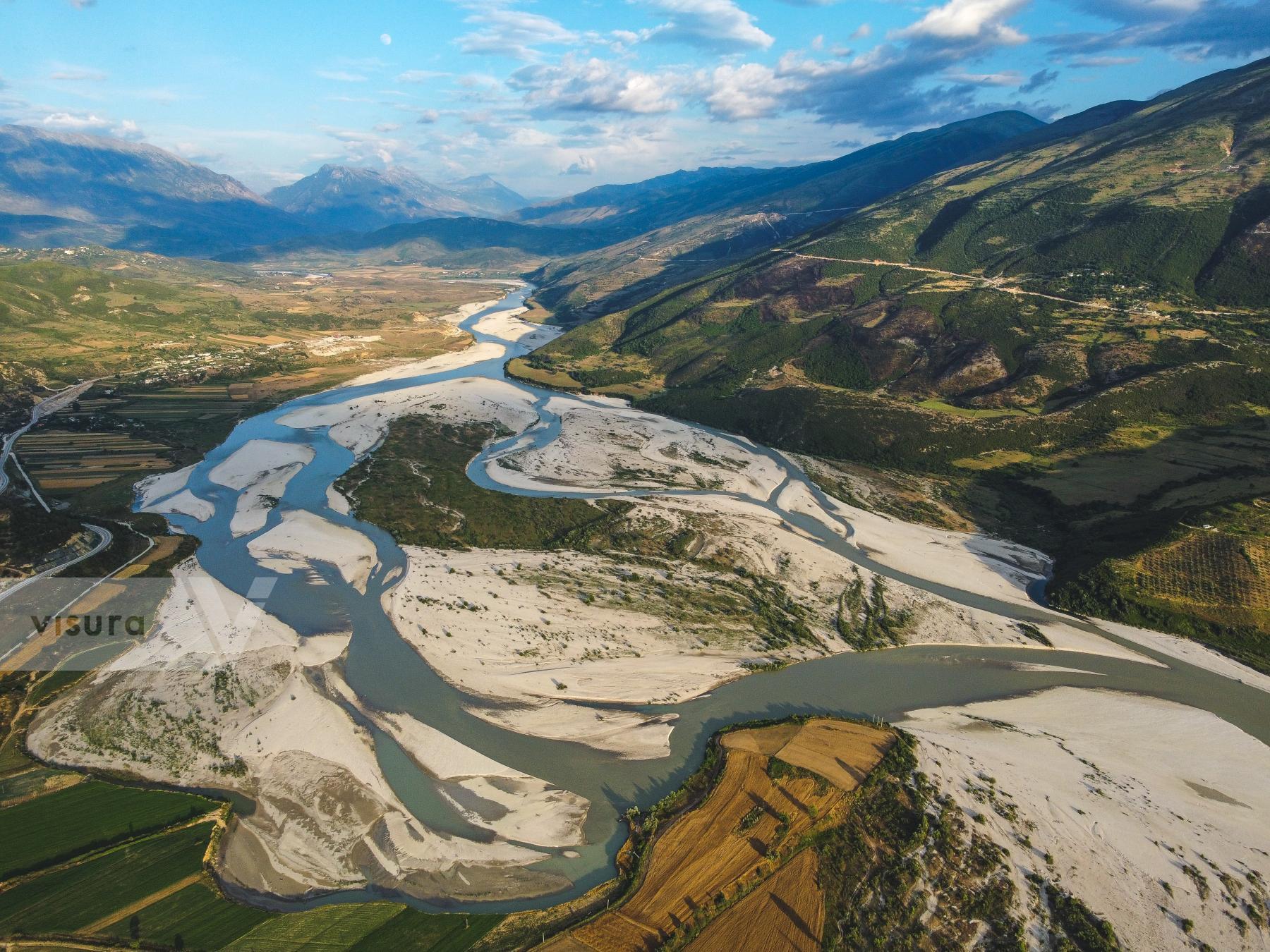
The Vjosa near Qesarat, southern Albania. Considered one of Europe's last wild rivers, activists have been campaigning for years to have it declared a fully protected national park. On 13th June 2022, the Albanian government signed a memorandum of understanding with American outdoor brand Patagonia and multiple NGOs, to designate the Vjosa and most of its tributaries a national park.
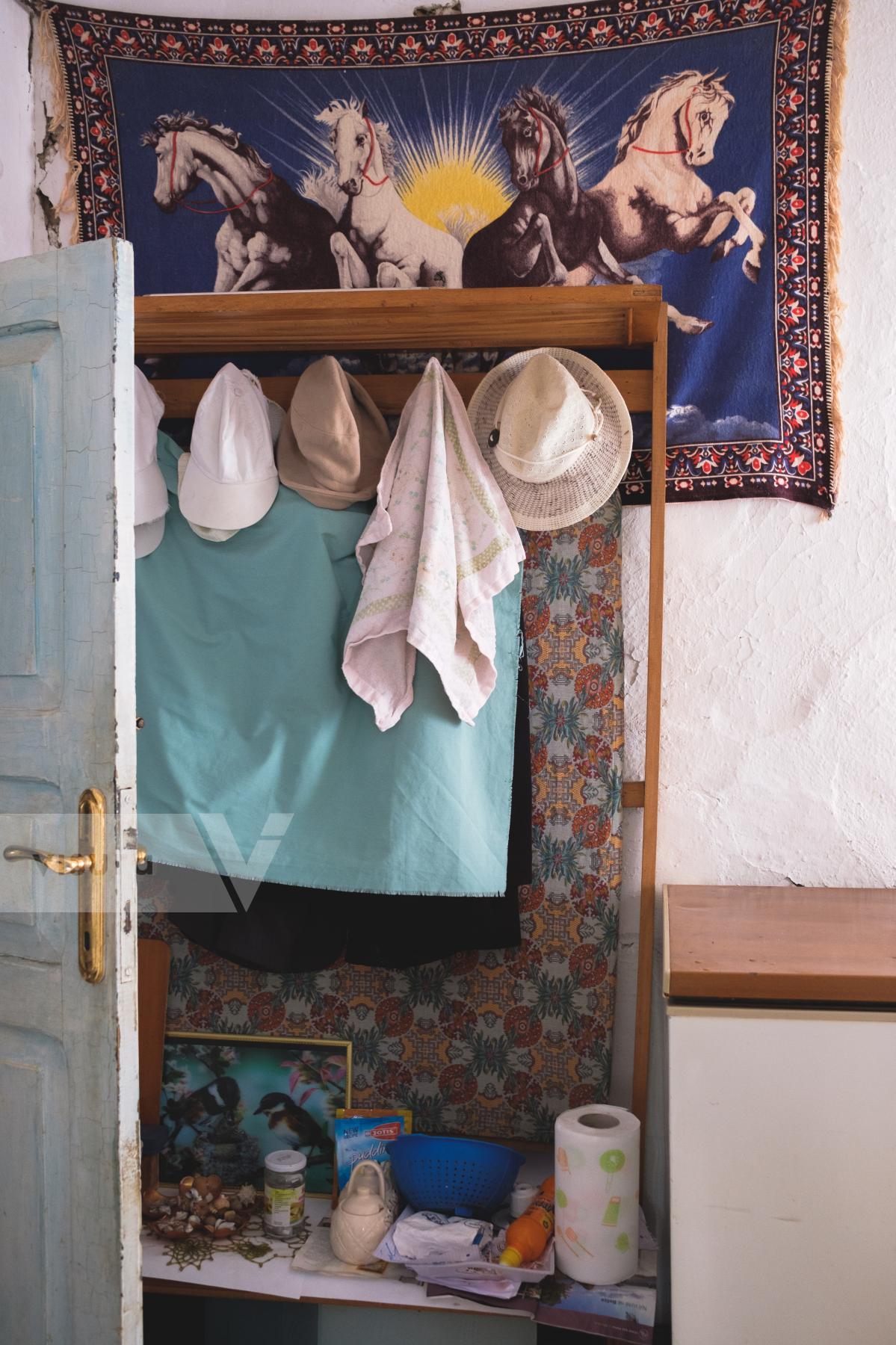
An interior of the Shehu family house in Bënça, a village on the tributary river of the same name. The Shehus and other locals organised protests against a hydropower project on the Bënça river, blocking roads and sending a signed petition to the central government. Their efforts resulted in the government ending construction of the dam.
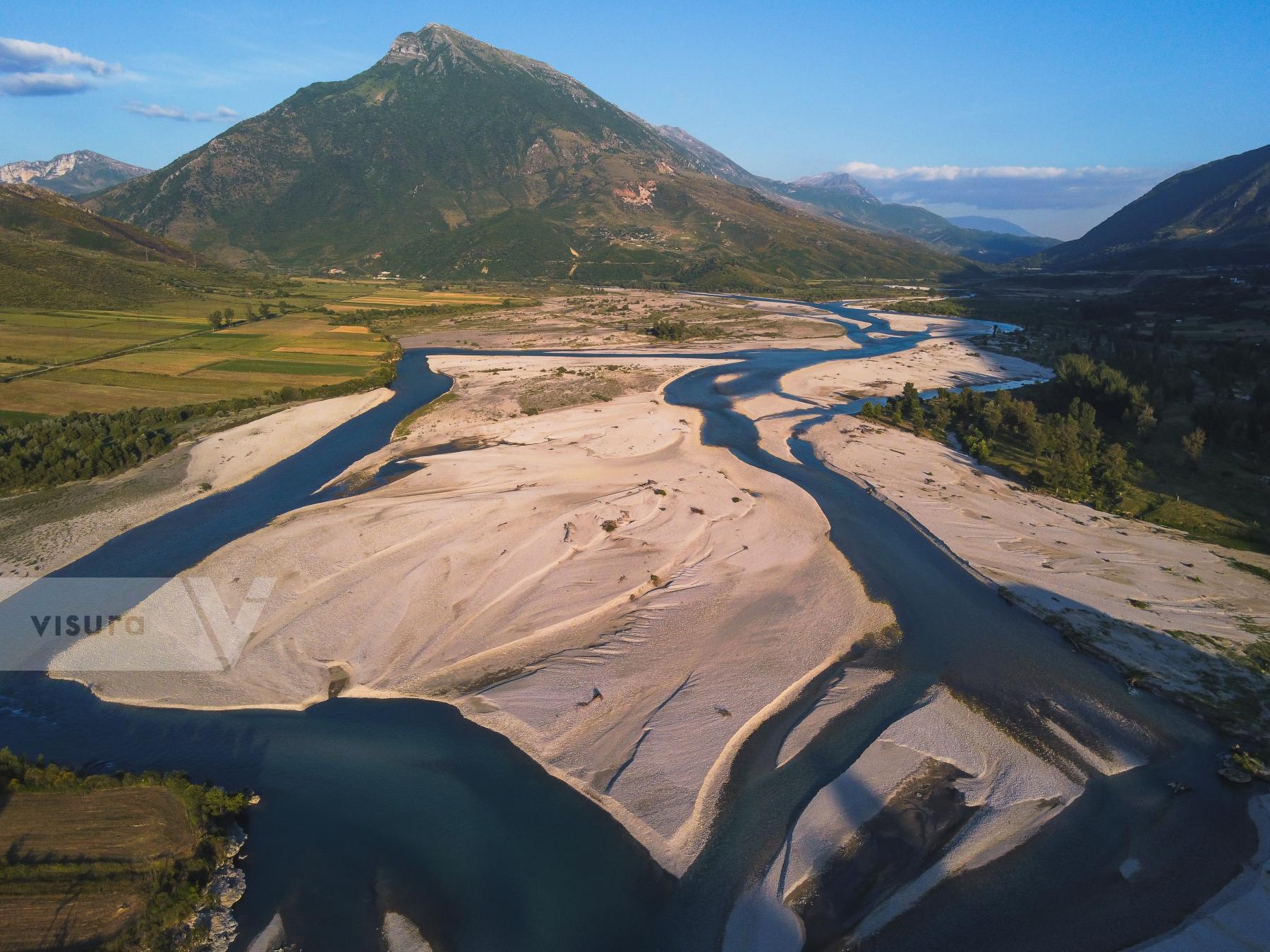
The confluence of the Vjosa river and its tributaries the Drino and Bënça, near the town of Tepelenë in southern Albania. Many sections of the river are braided, featuring islands that change throughout the year depending on flooding, and the natural flow of sediment.
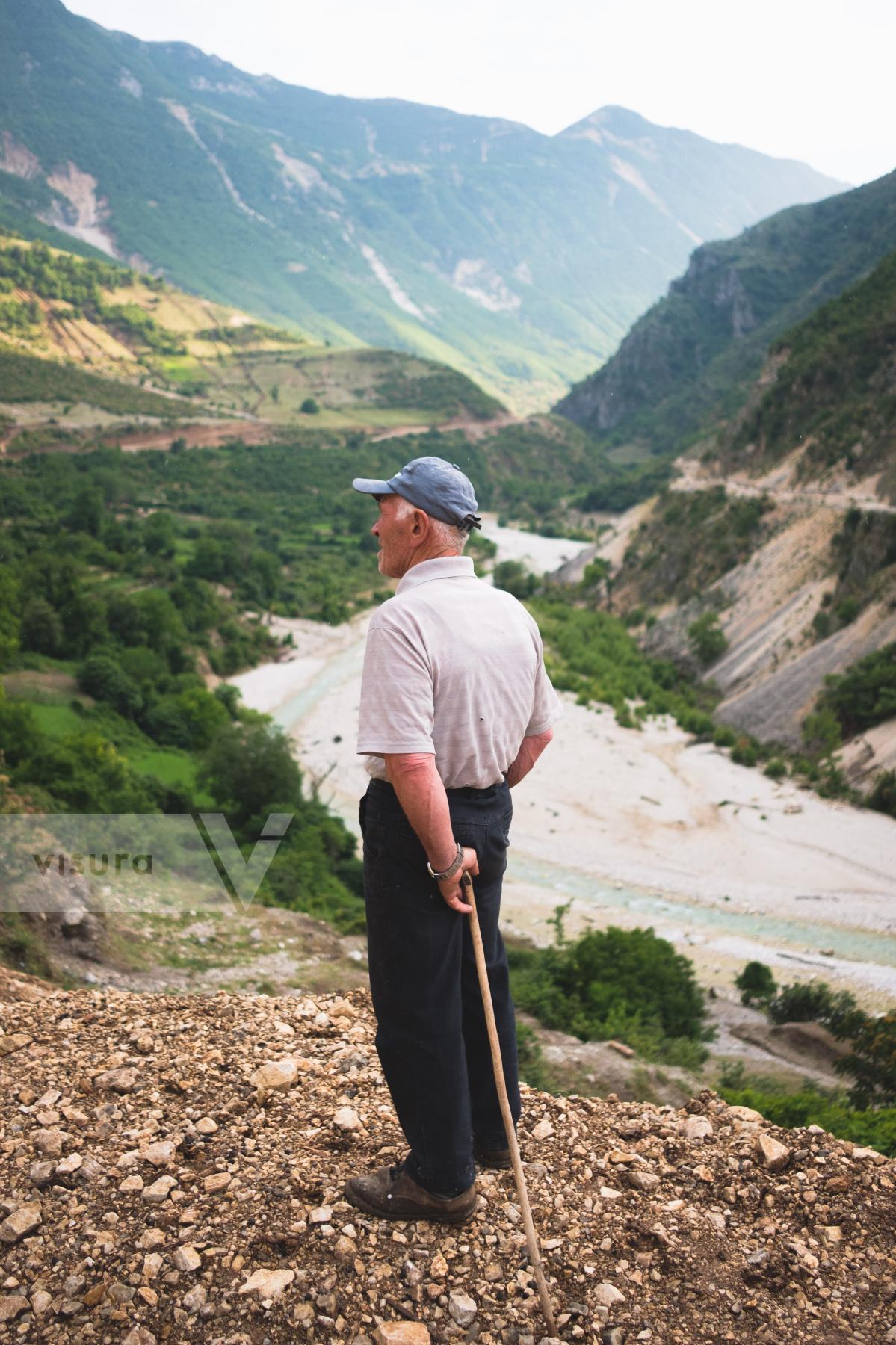
Rakip, a pensioner, looks out over the Bënça river valley. Most of the village's young population has left to work in nearby Tepelenë or the capital Tirana, leaving the older generation to work the area’s agricultural fields.
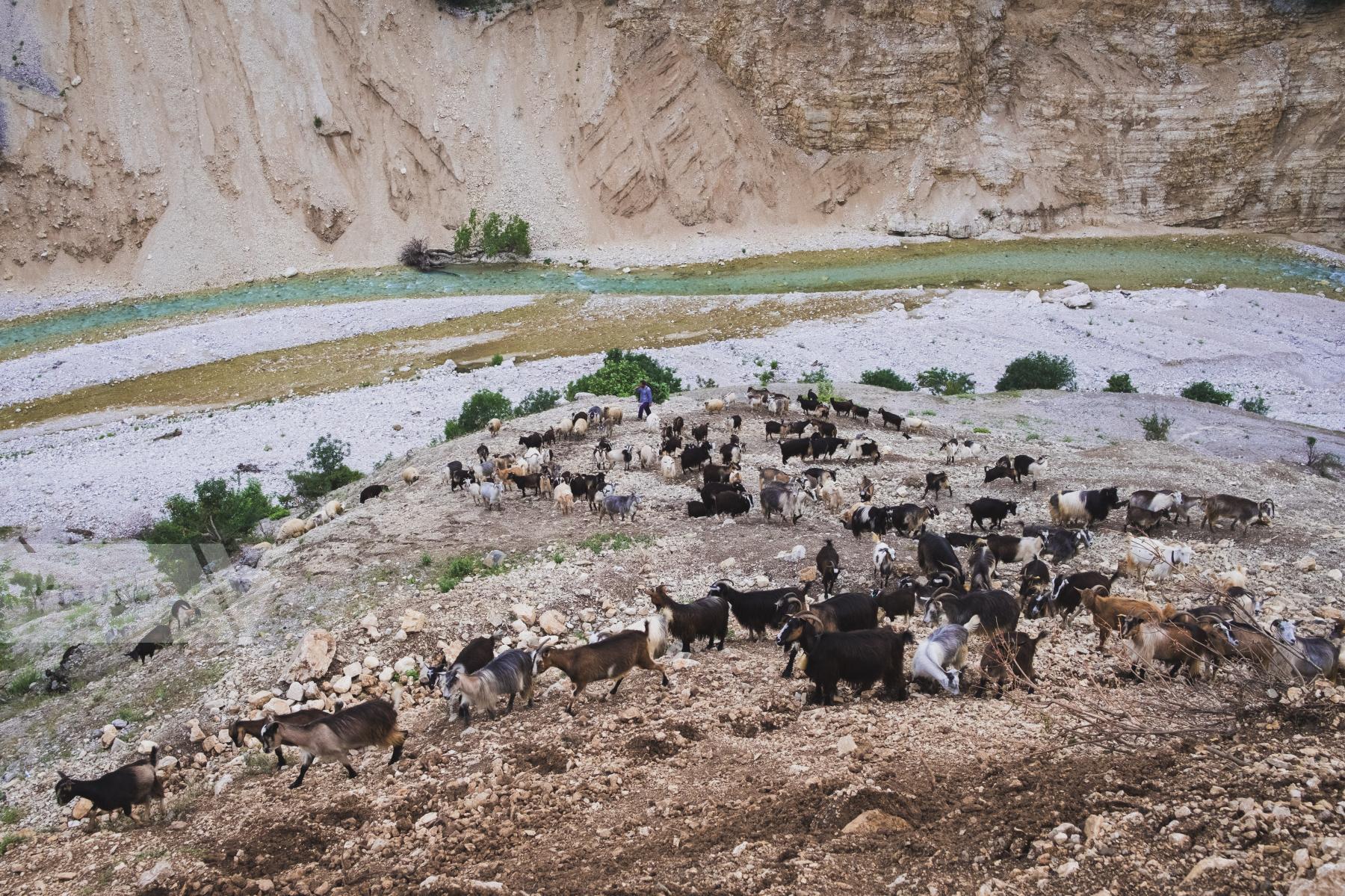
A farmer walks with his goats in the Bënça valley, near the proposed construction site for a hydropower project.
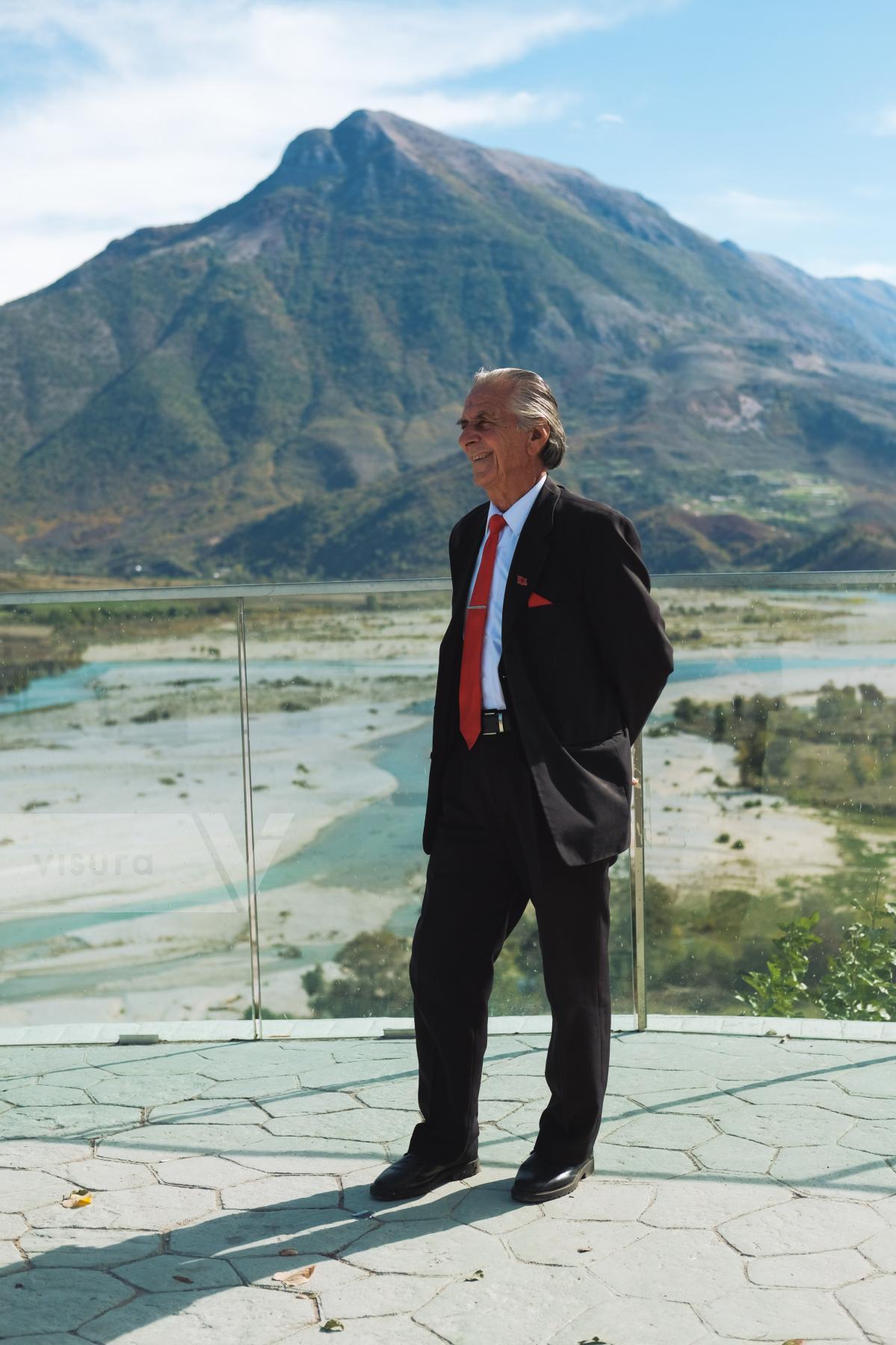
Golik Jaupi, a well known iso polyphonic singer from the village of Bënça, stands near the Vjosa river in Tepelenë. He was one of the lead activists against proposed hydropower dams on the Bënça tributary river, which successfully resulted in Prime Minister Edi Rama halting the projects.
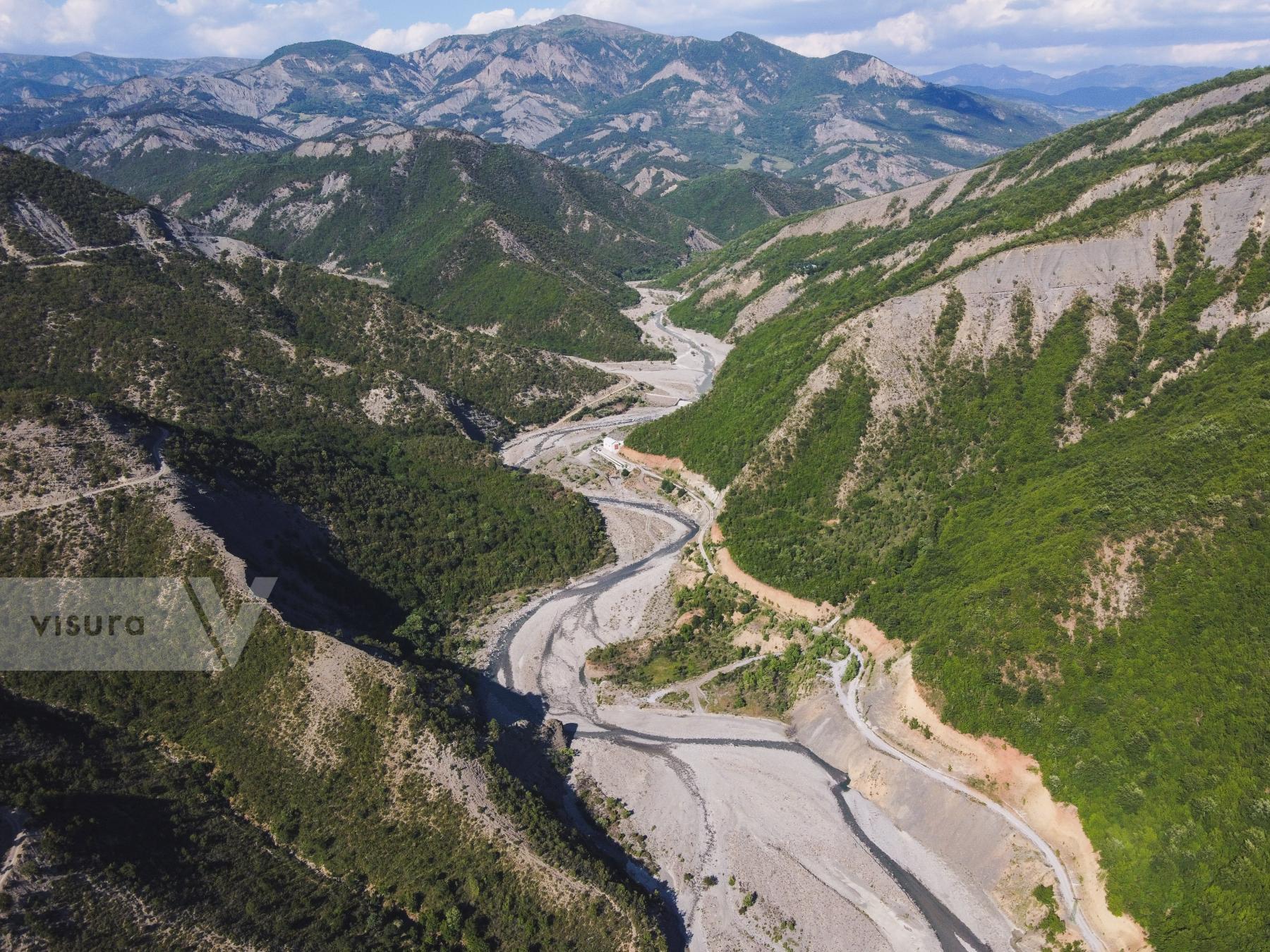
The Langarica river, a tributary of the Vjosa which has a series of small scale hydropower dams and diversions along its course. The dams were constructed by an Austrian company even though much of the river falls inside the protected Fir of Hotovê National Park. For much of the year the river runs at a fraction of its natural flow, with much of its water diverted underground to a power station downstream.
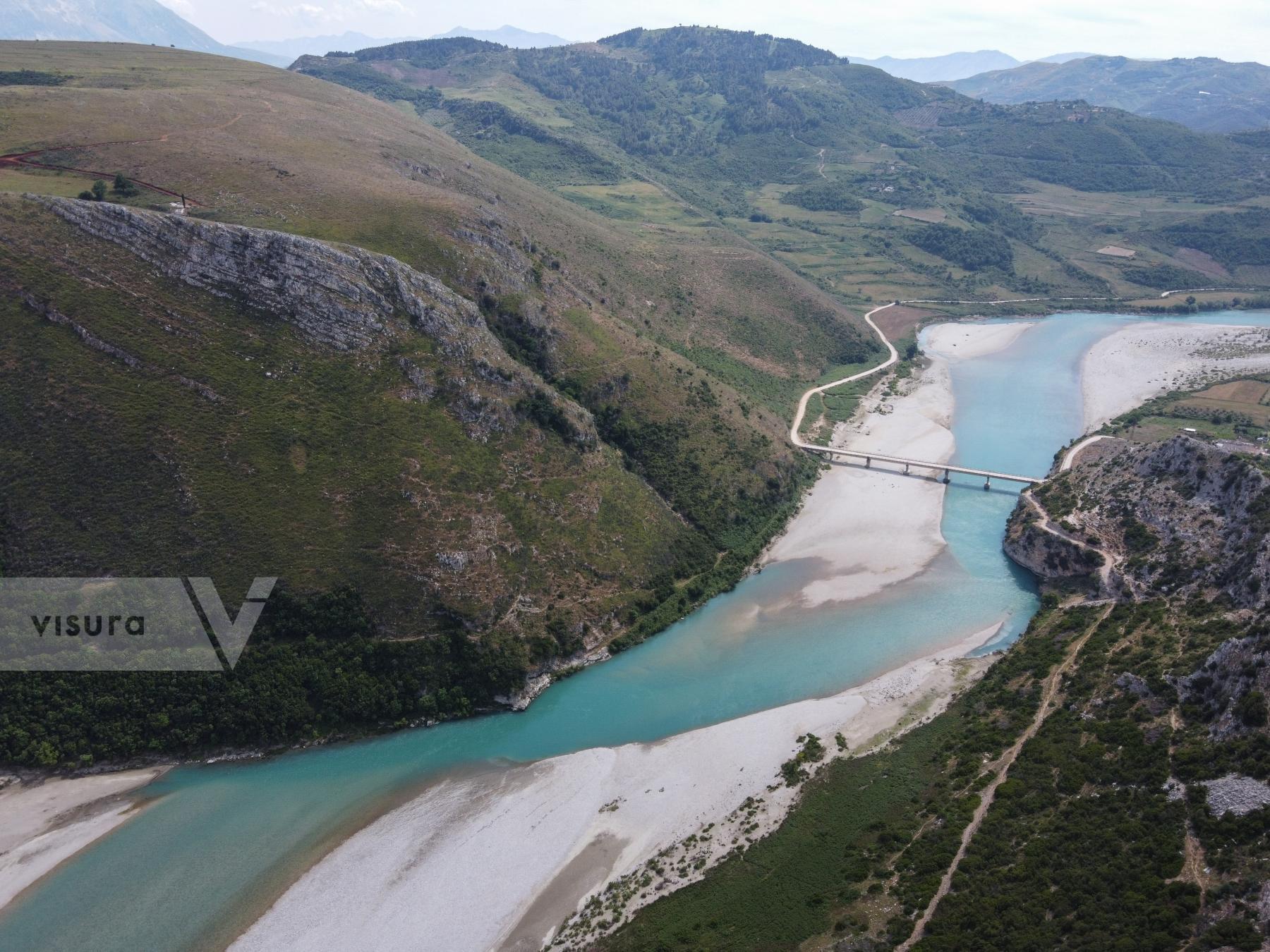
The site of a proposed large hydropower dam on the Vjosa river, near the village of Poçem. A group of local and international activists and scientists sued the Albanian government in 2017, citing a falsified environmental impact assessment, and lack of public consultation. A high court found in favour of the group, ordering construction to halt. The case has been in appeal for several years.
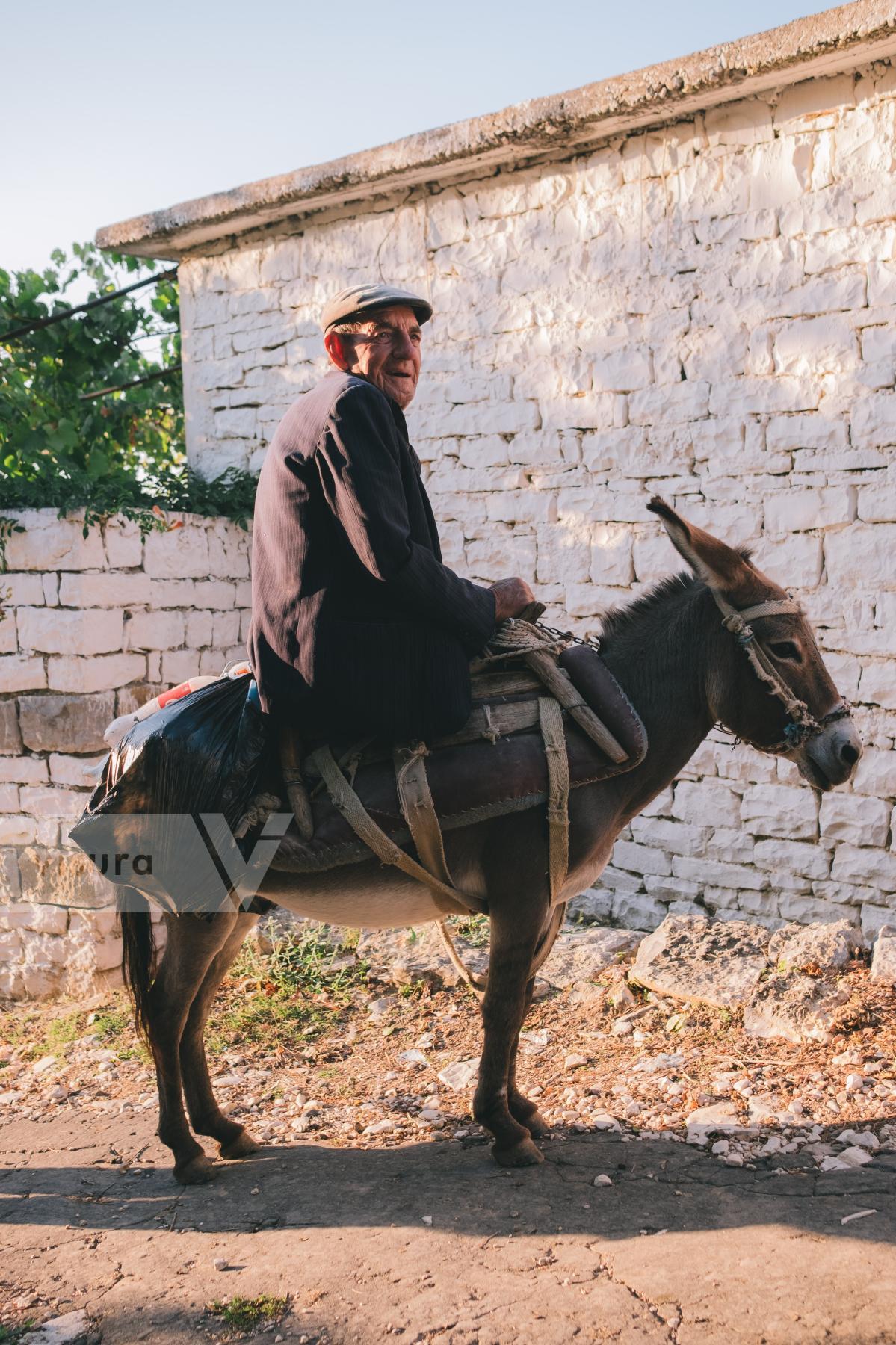
A villager in Kalivaç, near the abandoned construction site of a large scale dam. Many locals favoured the dam, believing its construction would bring jobs and infrastructure improvements to their area. Once completed however, dams require only a small workforce for their operation.
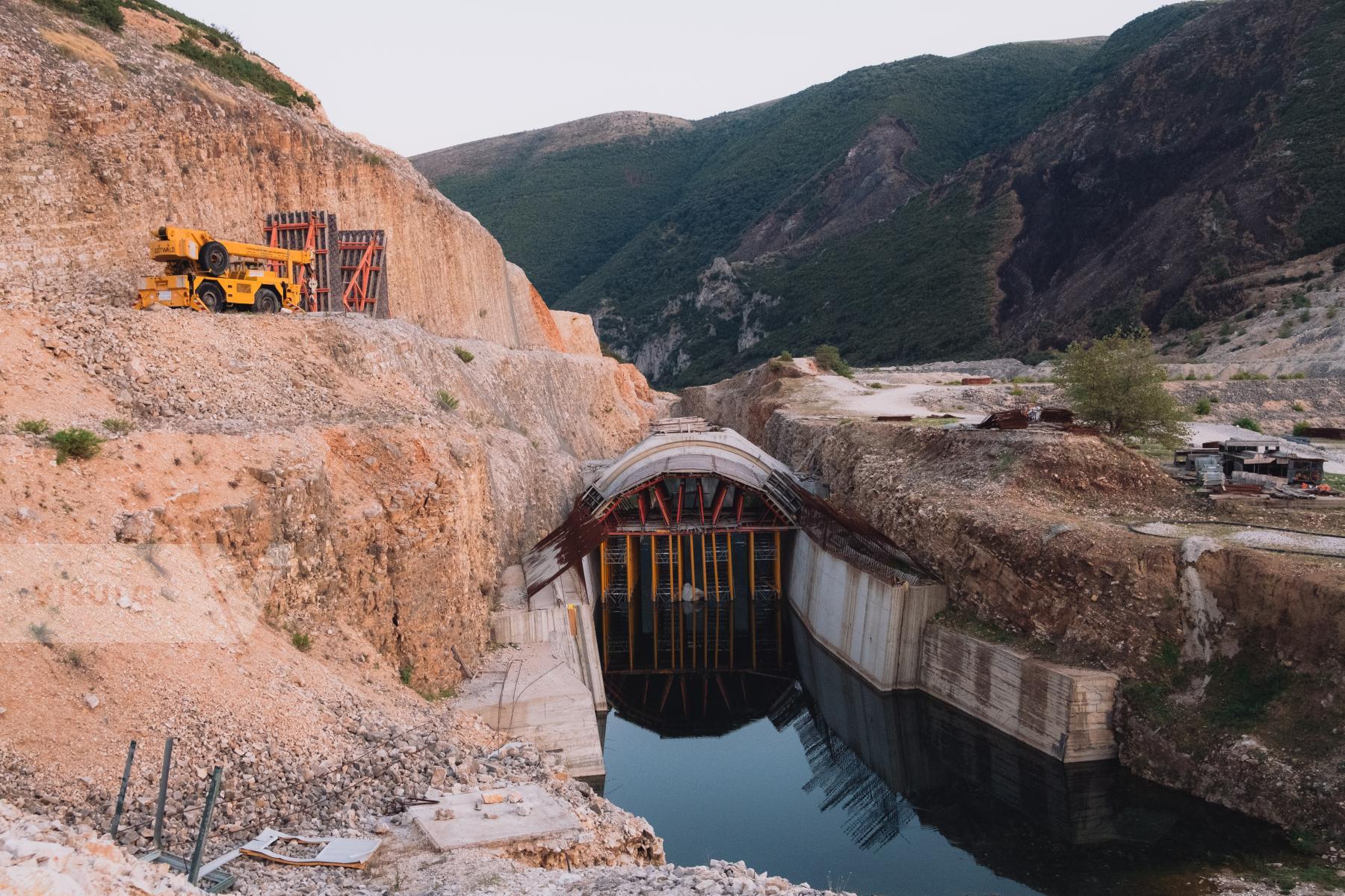
A stalled construction site for a large hydropower dam near the village of Kalivaç, on the Vjosa river. Construction began in 2007, but was halted several years later due to accusations of fraud and money laundering against the contractor. A subsequent contract for a Turkish construction firm was nullified by an Albanian court in 2021, citing an insufficient environmental assessment.
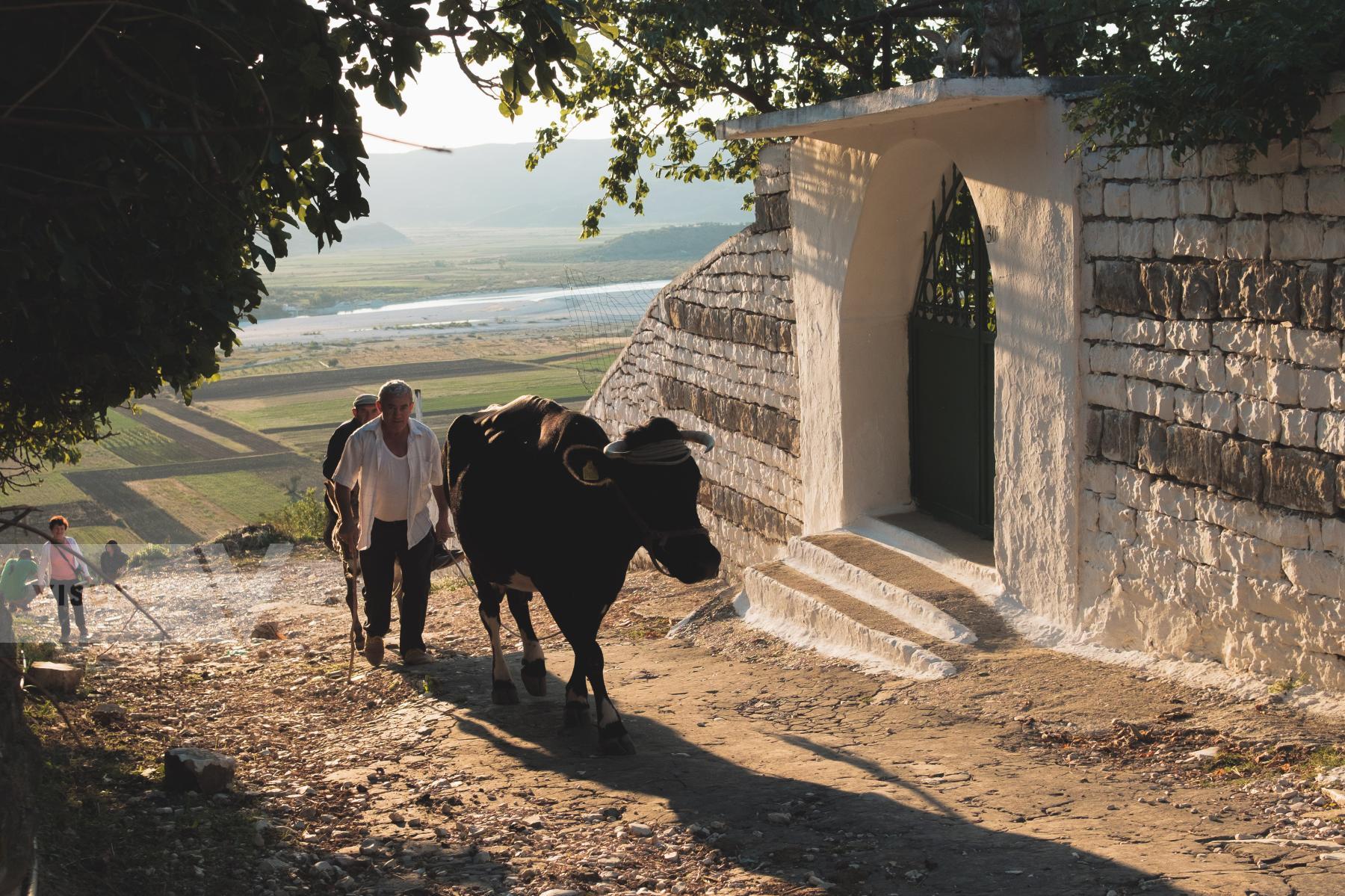
Locals bring their cattle home in the village of Kalivaç, near the former construction site of a large hydropower dam on the Vjosa. Now stalled for several years, many locals were employed for the project, and were in favour of its construction due to promises of development and job security.
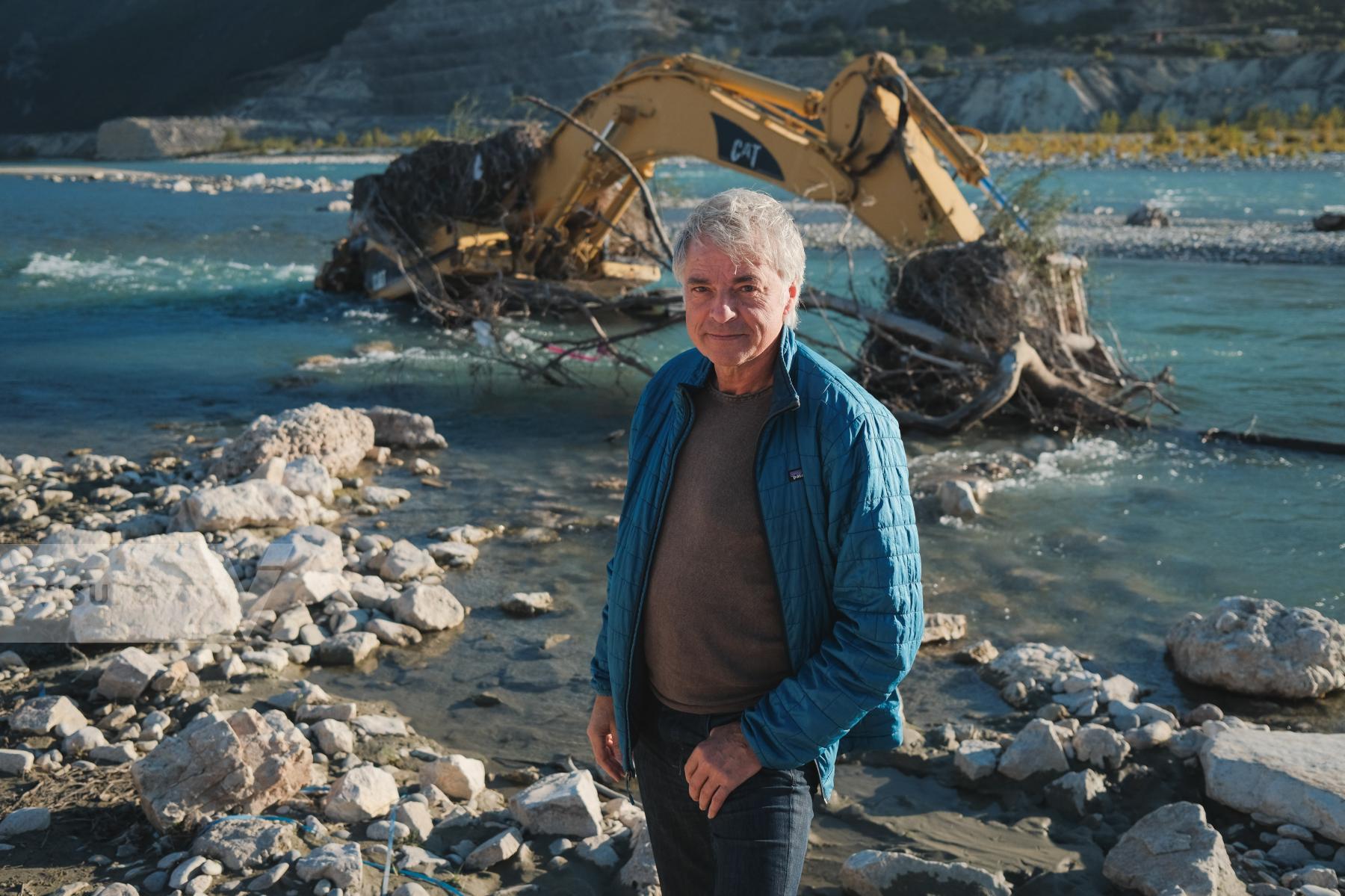
Ulrich Eichelmann, CEO of Austrian NGO Riverwatch, stands near the abandoned construction site of the Kalivaç hydropower dam on the Vjosa river. Riverwatch has been leading the international campaign to protect the Vjosa, which has attracted major backing from celebrities like Leonardo DiCaprio. Eichelmann previously worked for the World Wildlife Foundation and has been involved in several high profile campaigns against hydropower projects around the world.
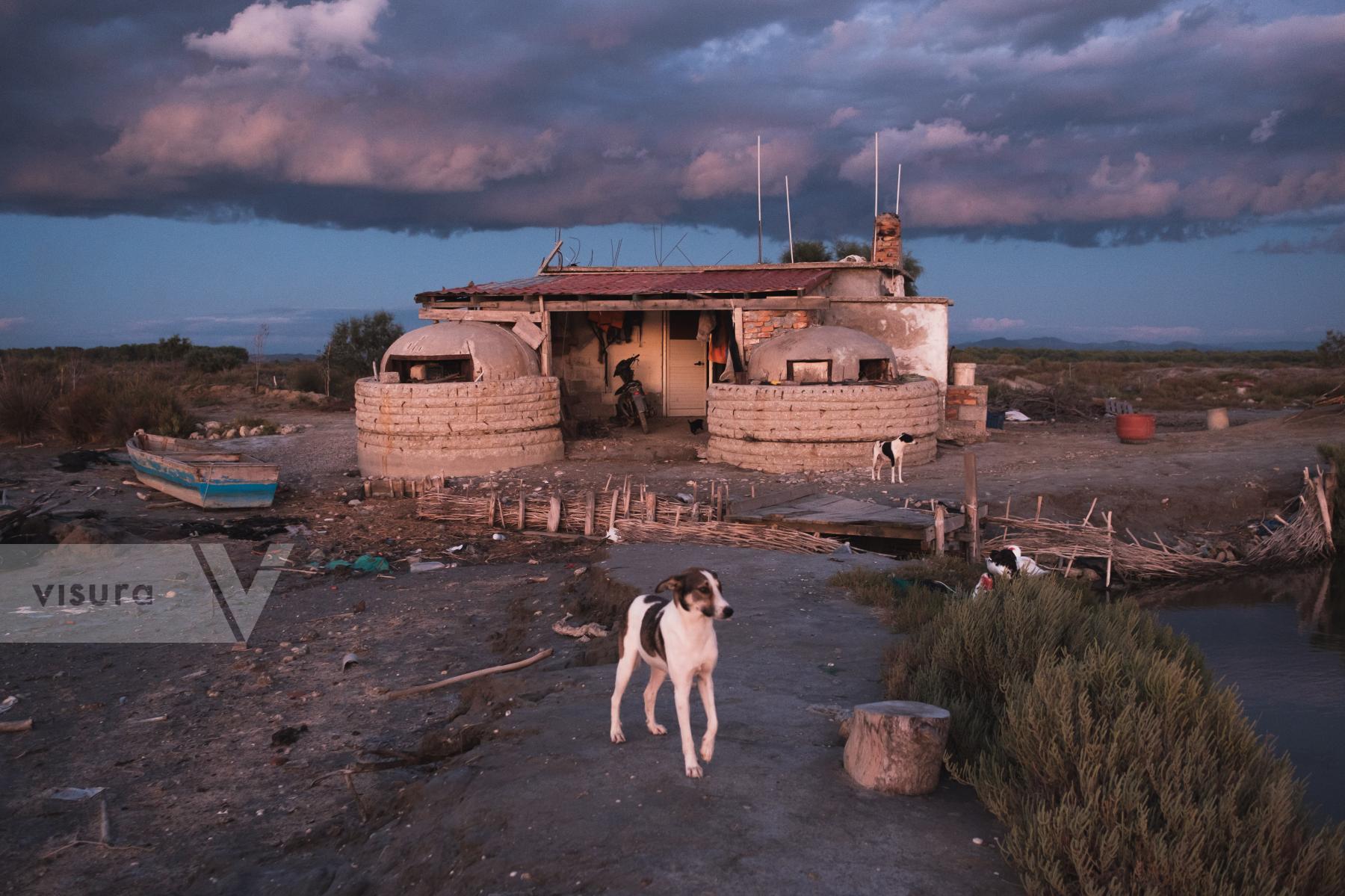
A fisherman’s shelter constructed between two communist-era bunkers in the Vjosa delta. Fishing along the river plays an important part in the local economy, and has already been negatively impacted by unregulated practices, such as dynamiting. Hydropower dams on the Vjosa would be detrimental for species such as the endangered European eel, which migrates along the river to spawn.
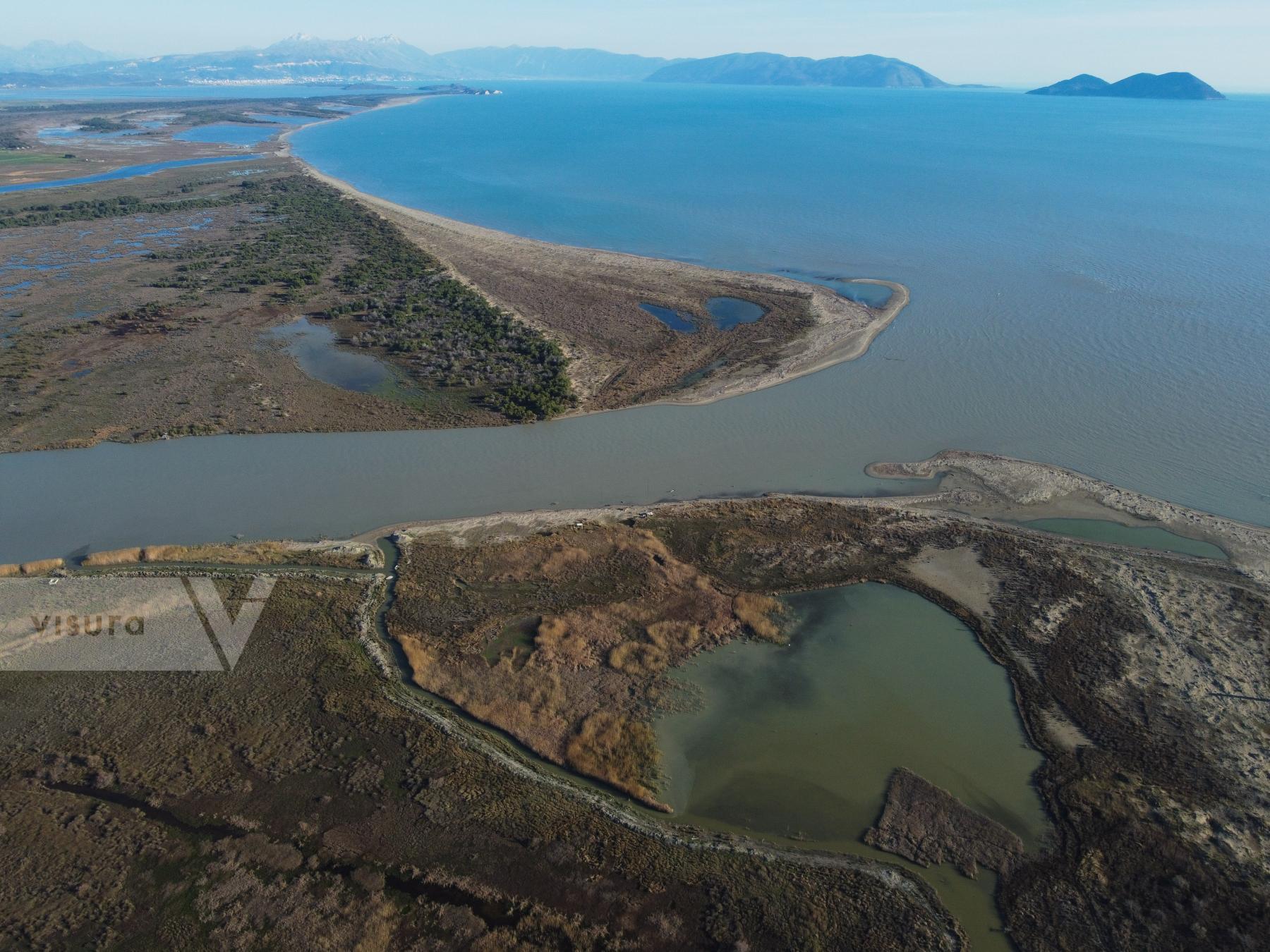
The mouth of the Vjosa, where it meets the Adriatic Sea, near the city of Vlora. On 15th March 2023, Prime Minister Edi Rama signed legislation declaring the Vjosa and most of its tributaries as Europe's first Wild River National Park. A multi year plan will see the boundaries of the national park established, along with training of staff to manage and maintain the area, and promotion of eco-tourism in local communities. Despite this, questions still loom over the fate of the nearby Vjosa-Narta lagoon, where construction of a new international airport threatens endangered migratory bird populations.



































